Arts & Literature
Local Award-Winning Fantasy Author Ellie Raine Talks About Writing
Published
2 years agoon
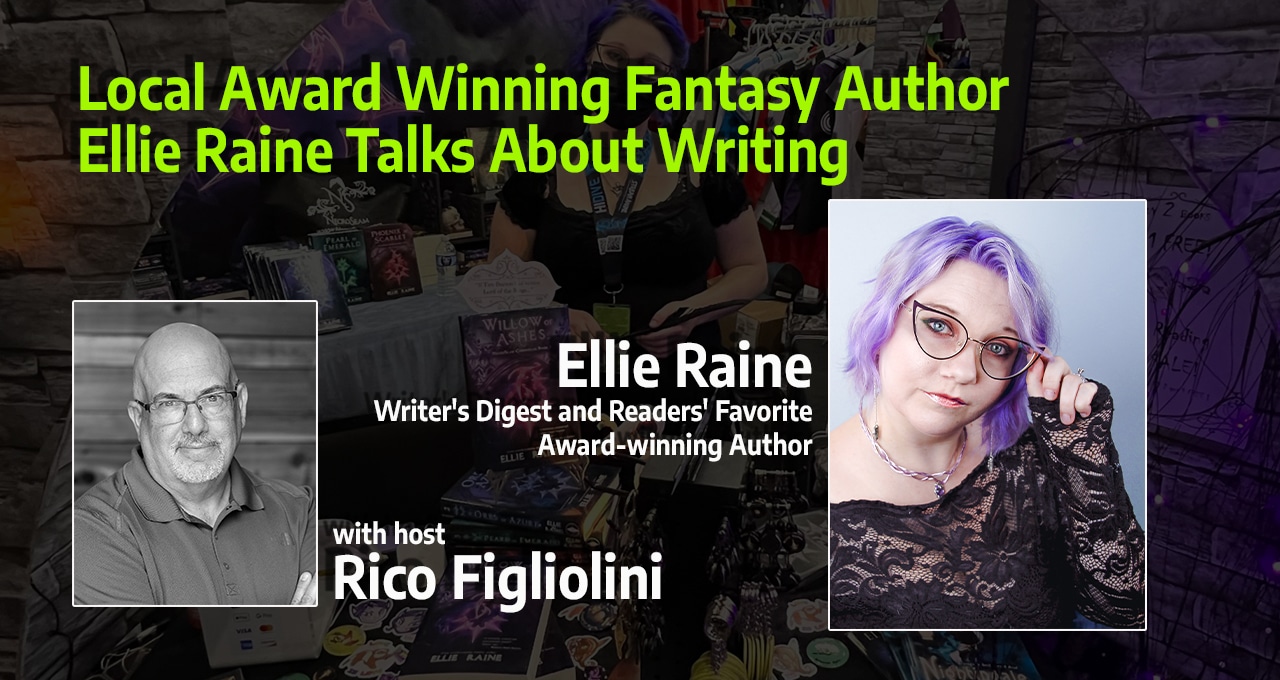
Ellie Raine is the award-winning author of the Adventure Fantasy series “The NecroSeam Chronicles.” Raine grew up in a family of book lovers, comic readers, and video gamers in the suburbs of Georgia and lives in Peachtree Corners where she attended Norcross High School.
In addition to writing, she has designed and created merchandise, art, and music related to her amazing fantasy series.
We talk about how she started, what inspired her and how she grew her craft and readership.
Resources:
Ellie Raine’s Website: https://www.ellieraine.com
Necroseam Website: https://www.necroseam.com
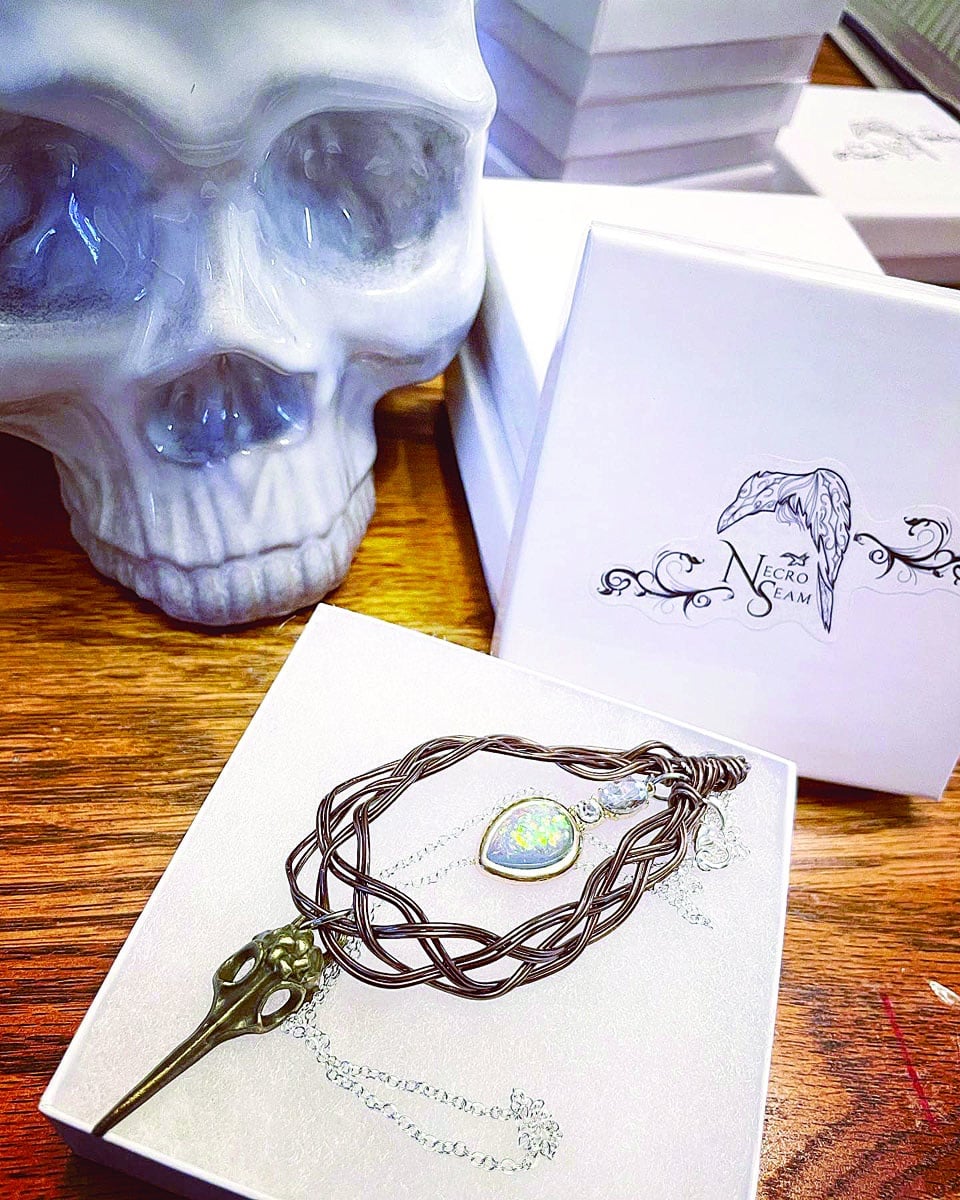
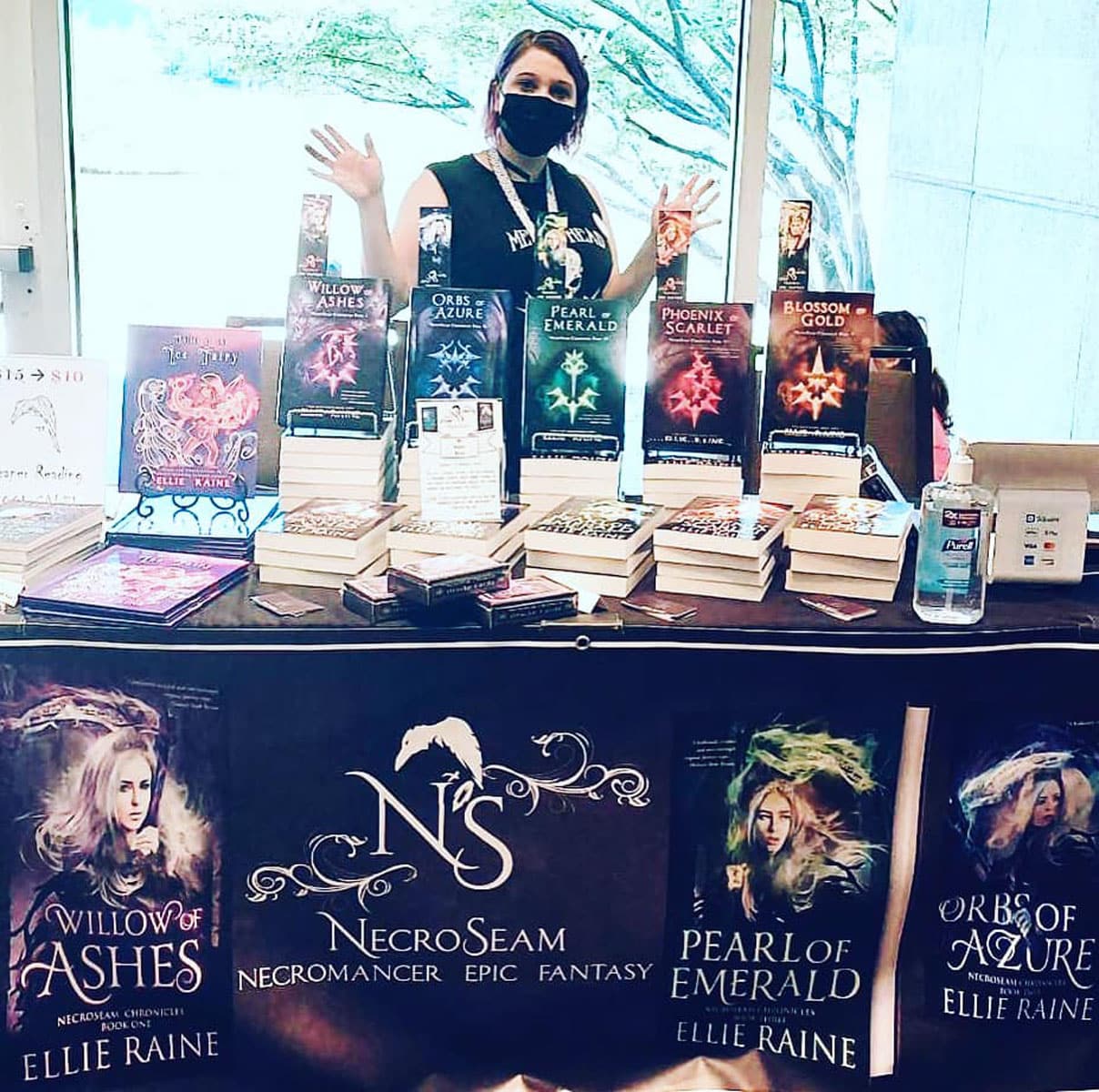
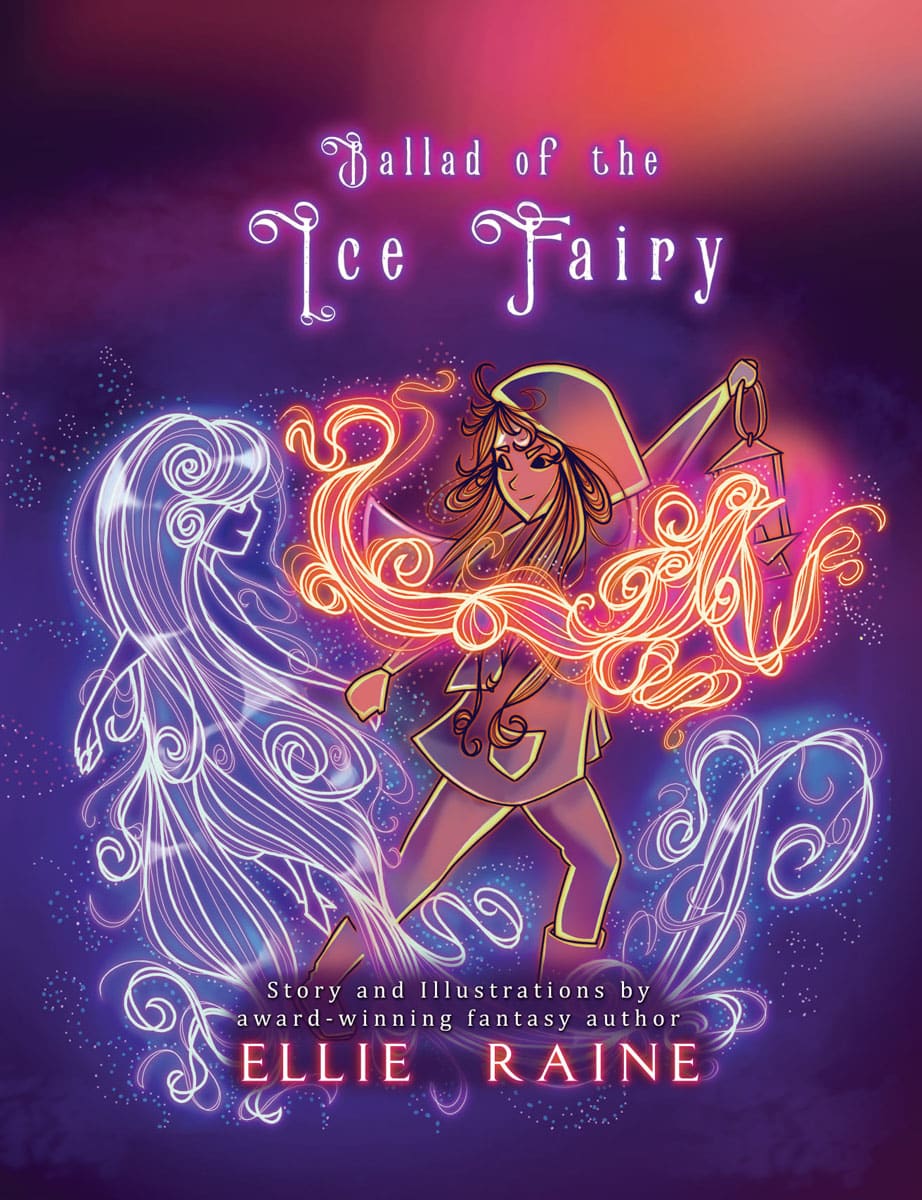
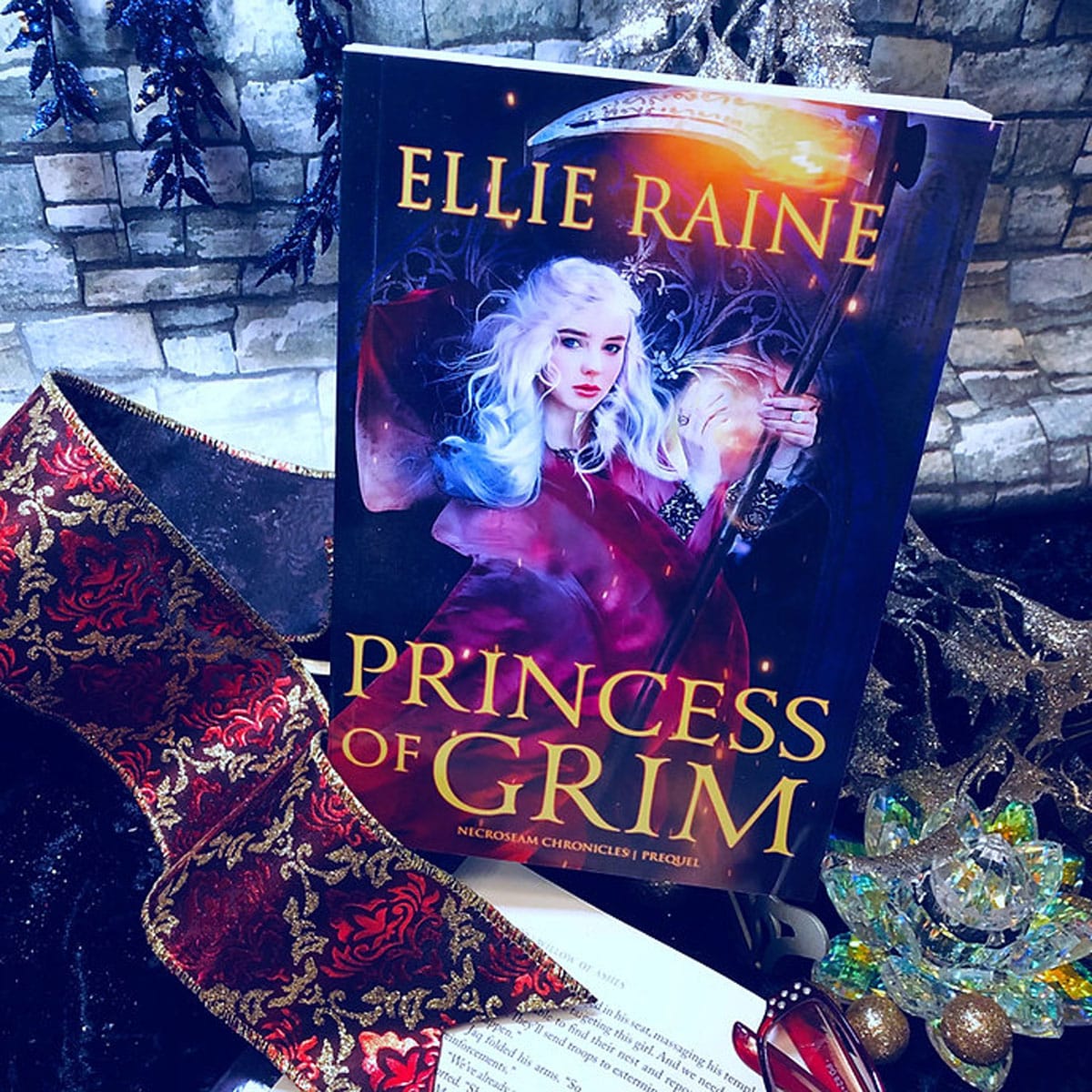
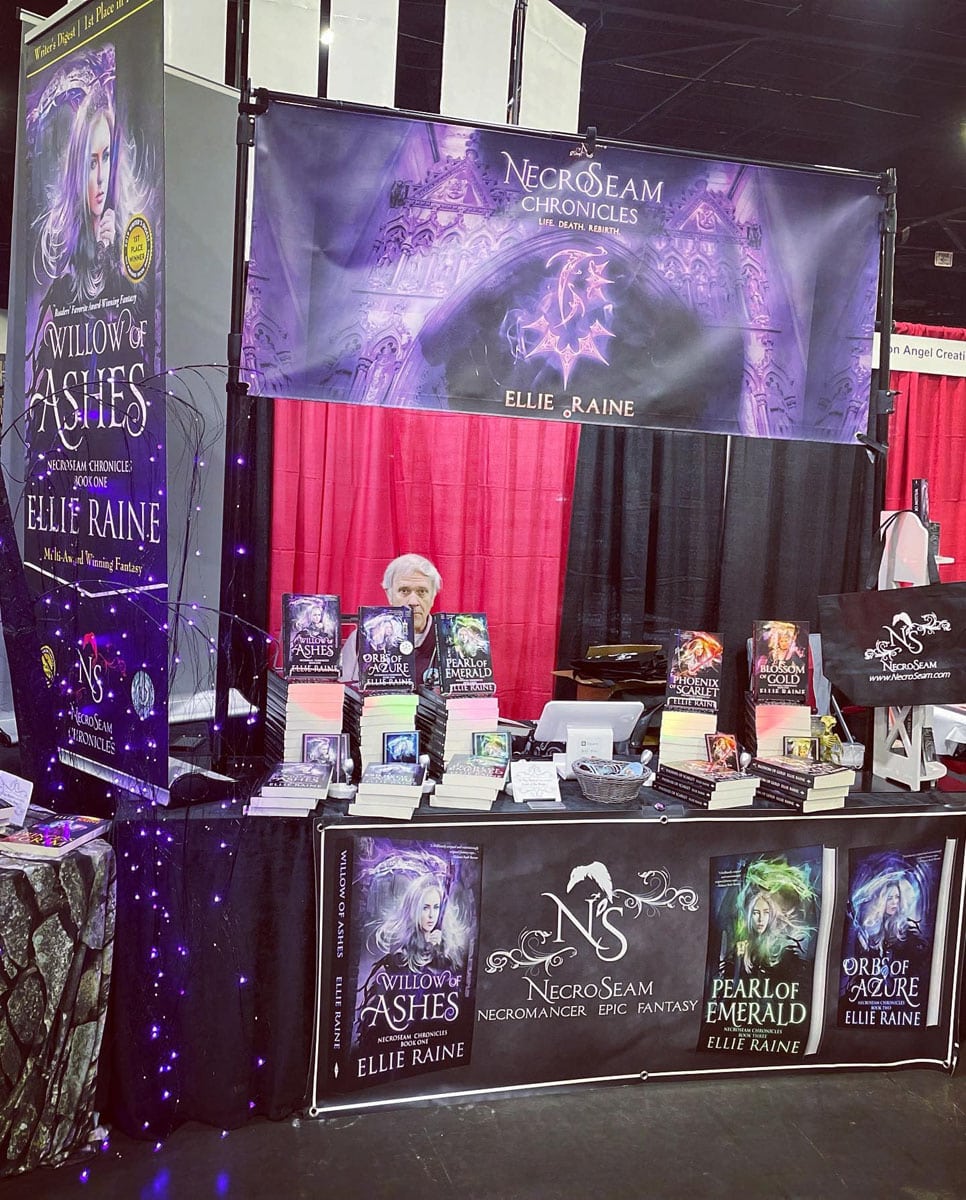
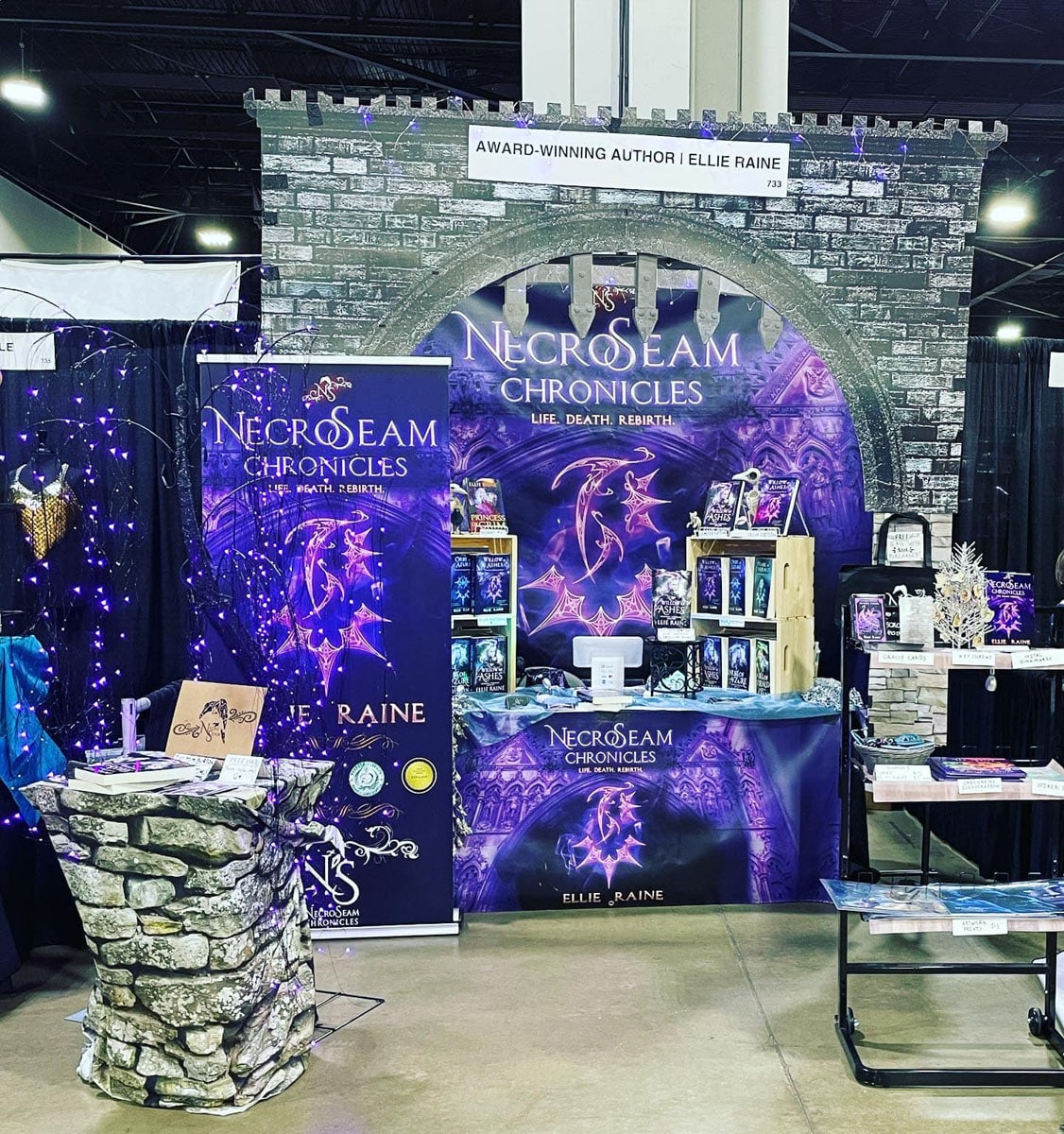
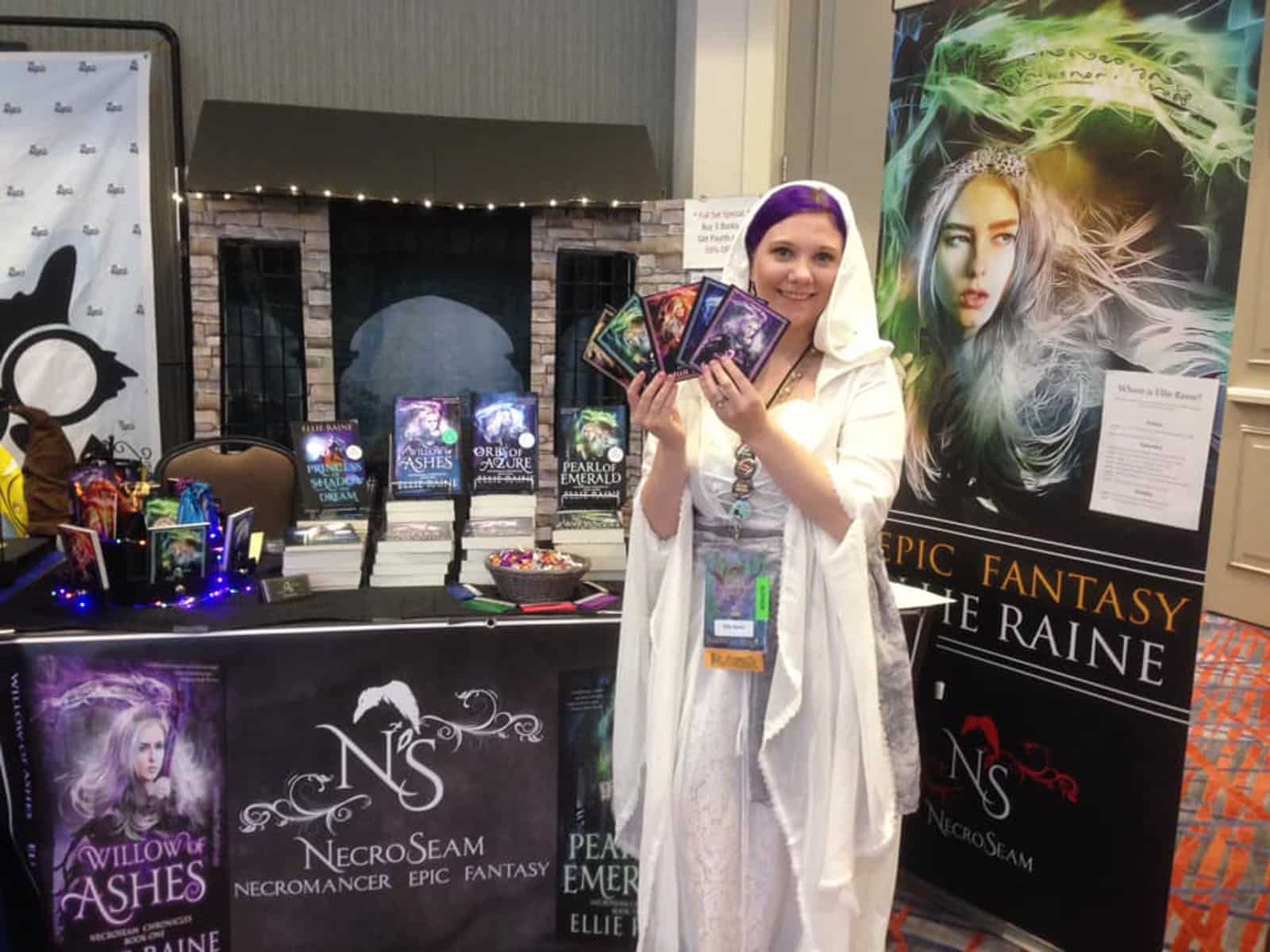
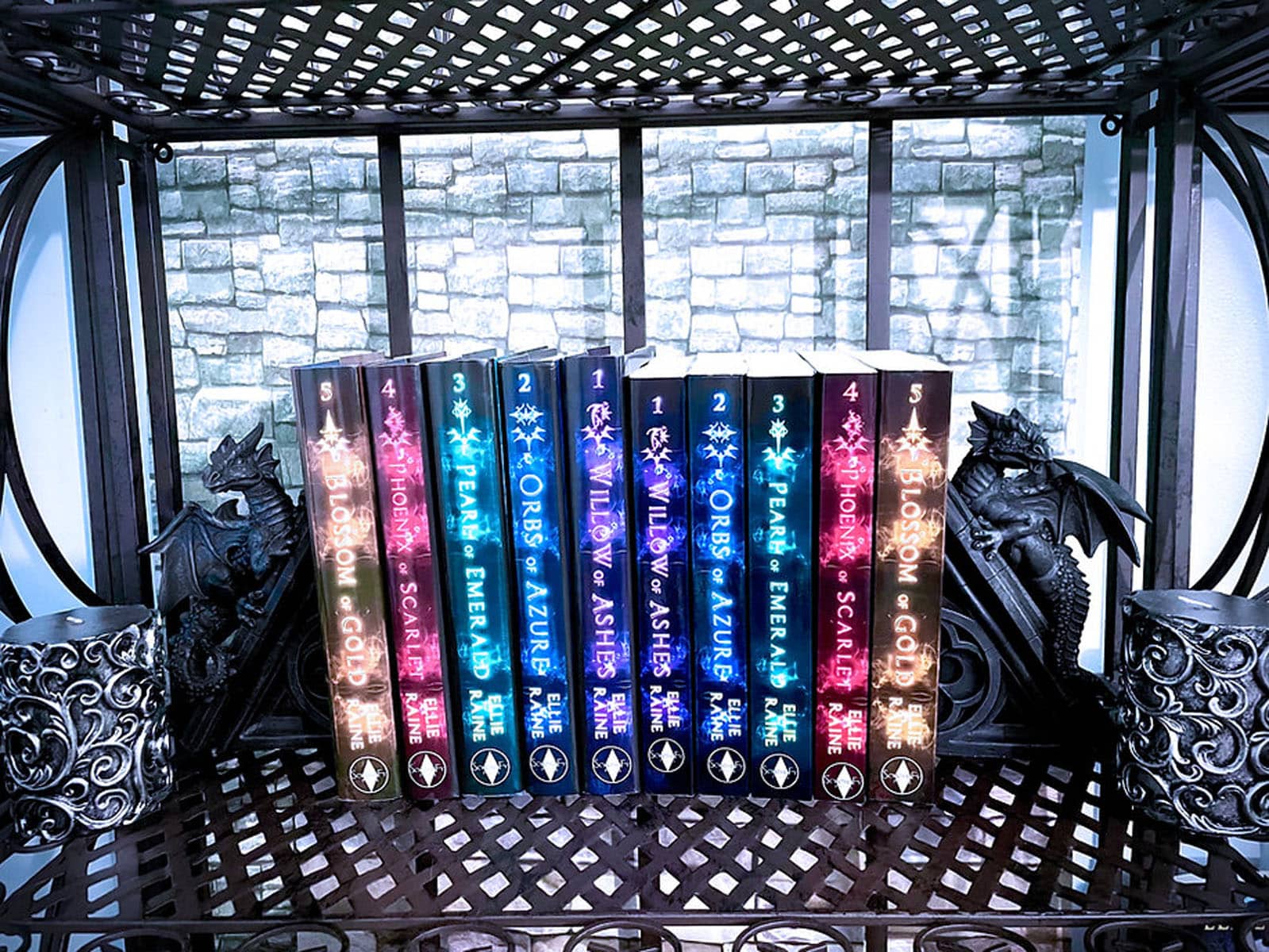
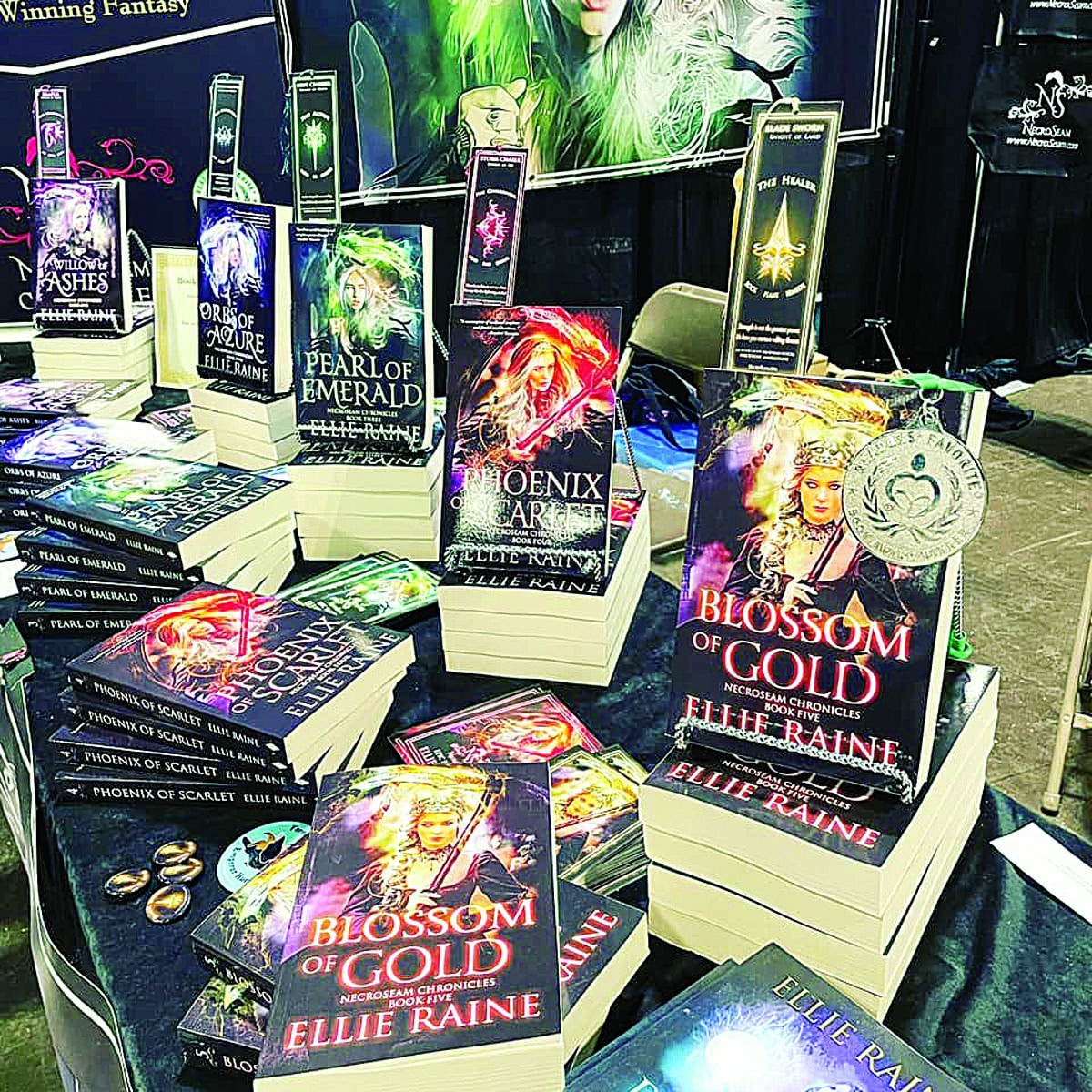
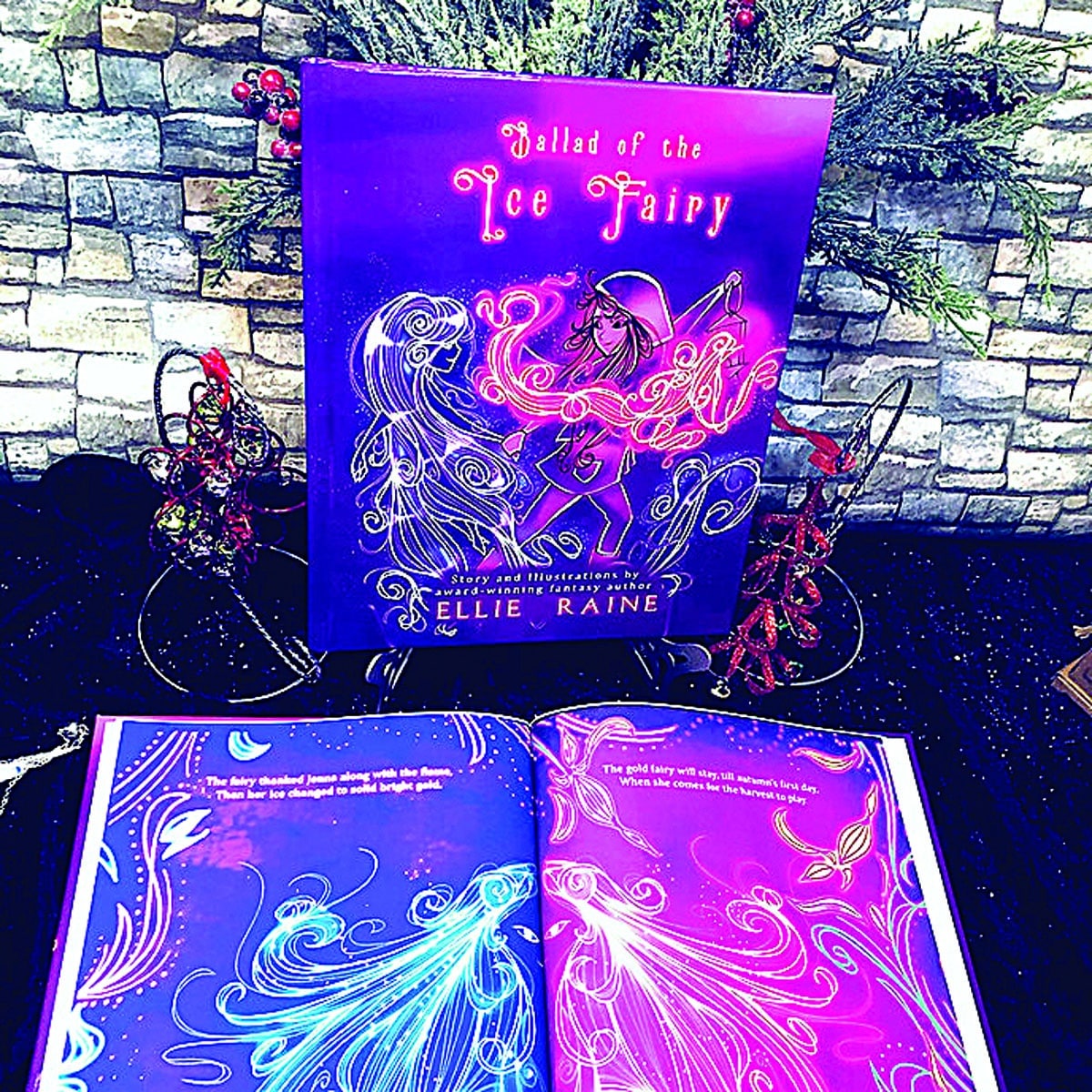
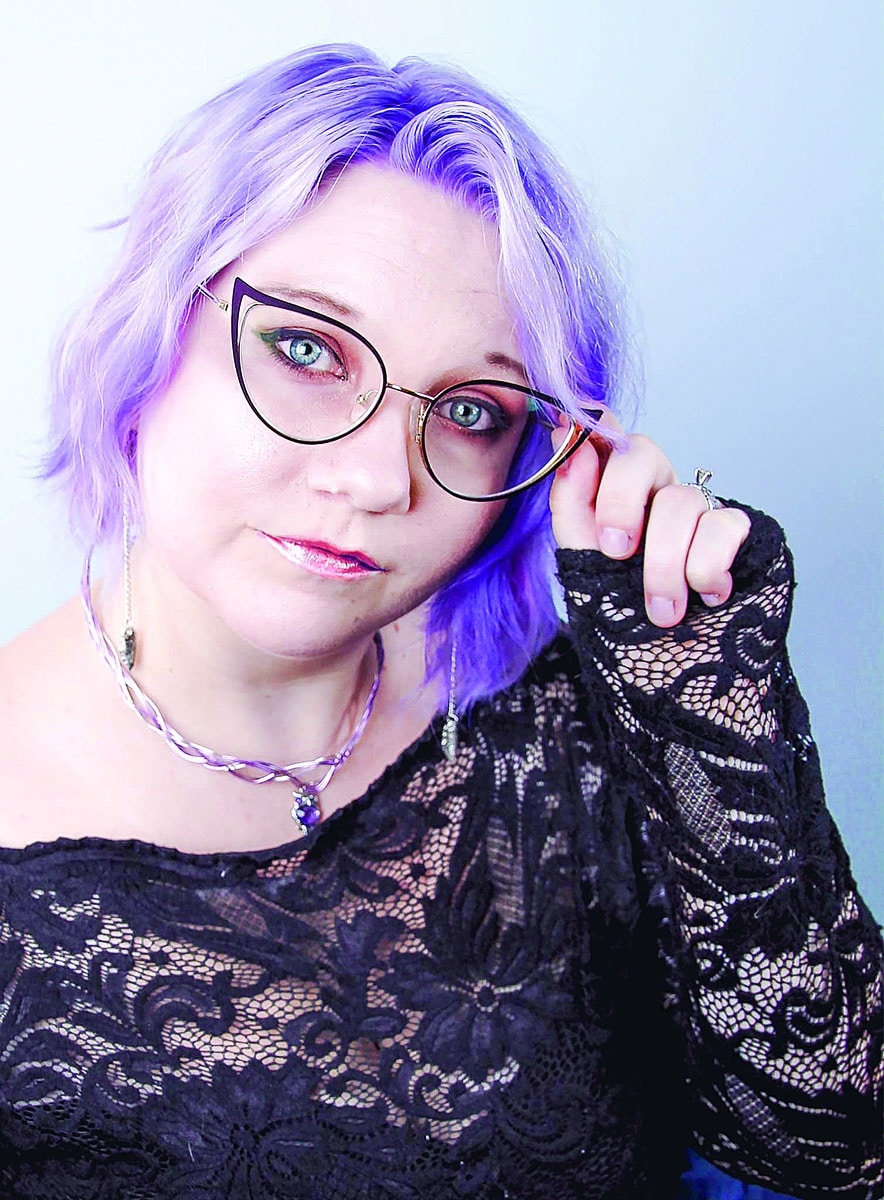
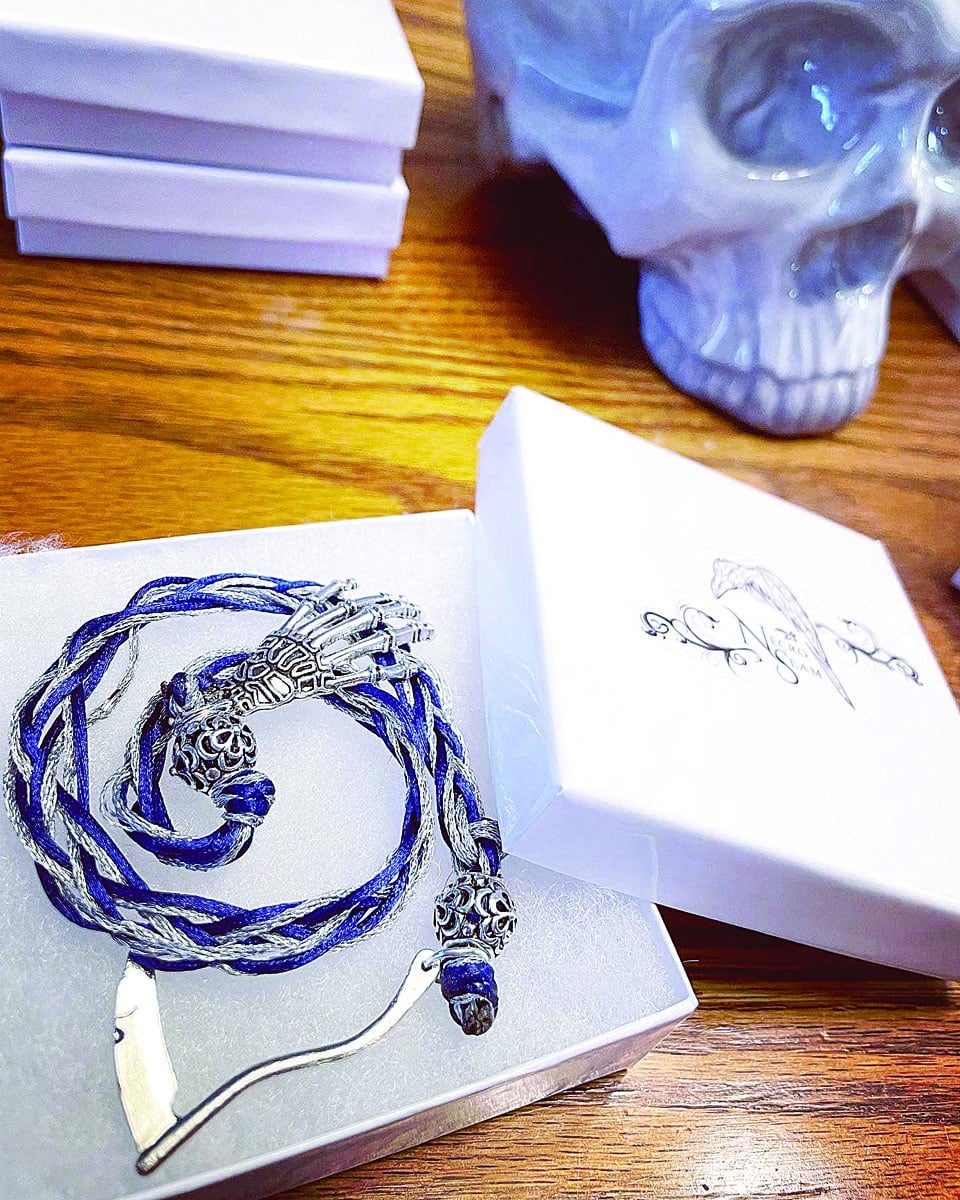
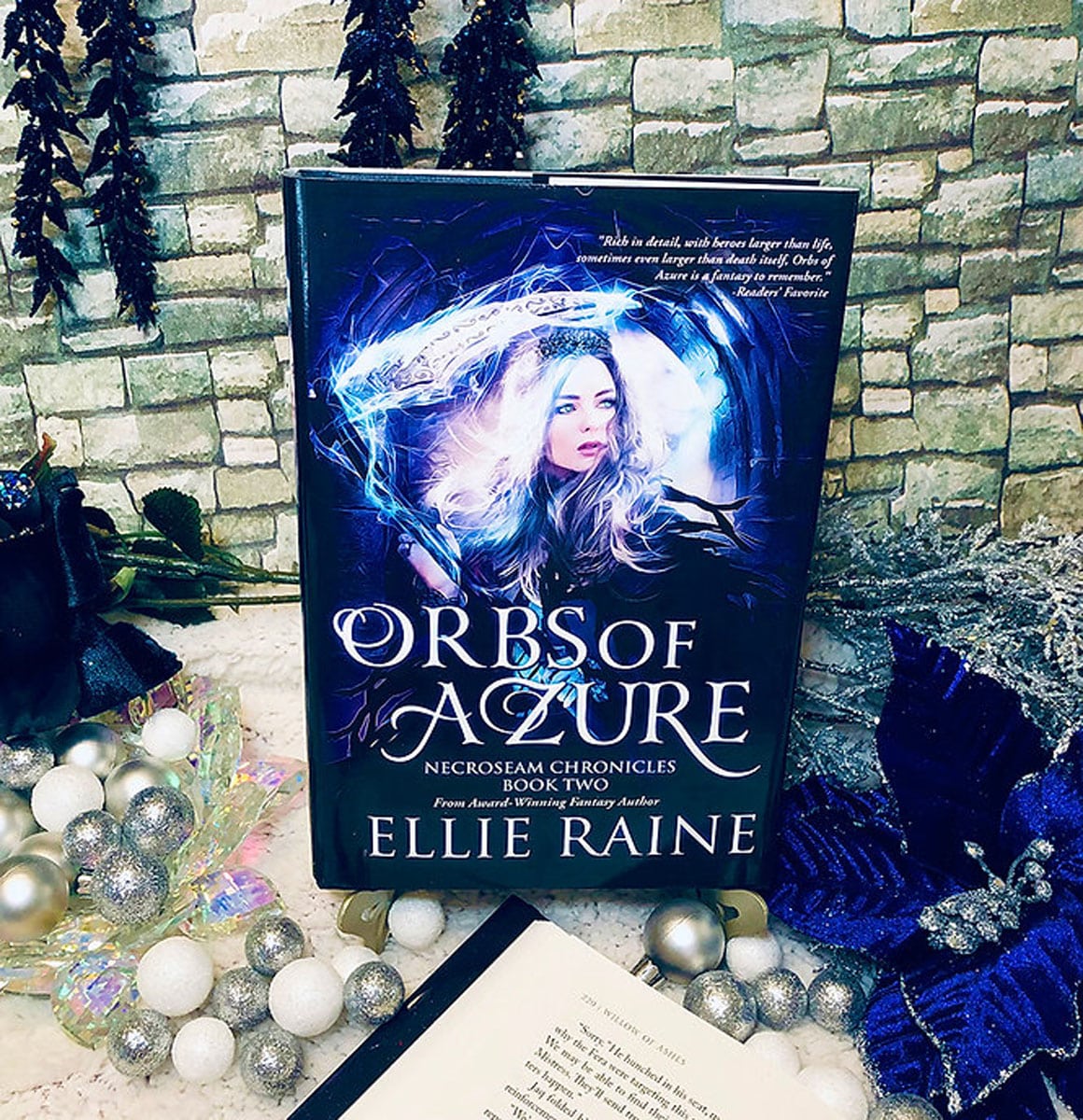
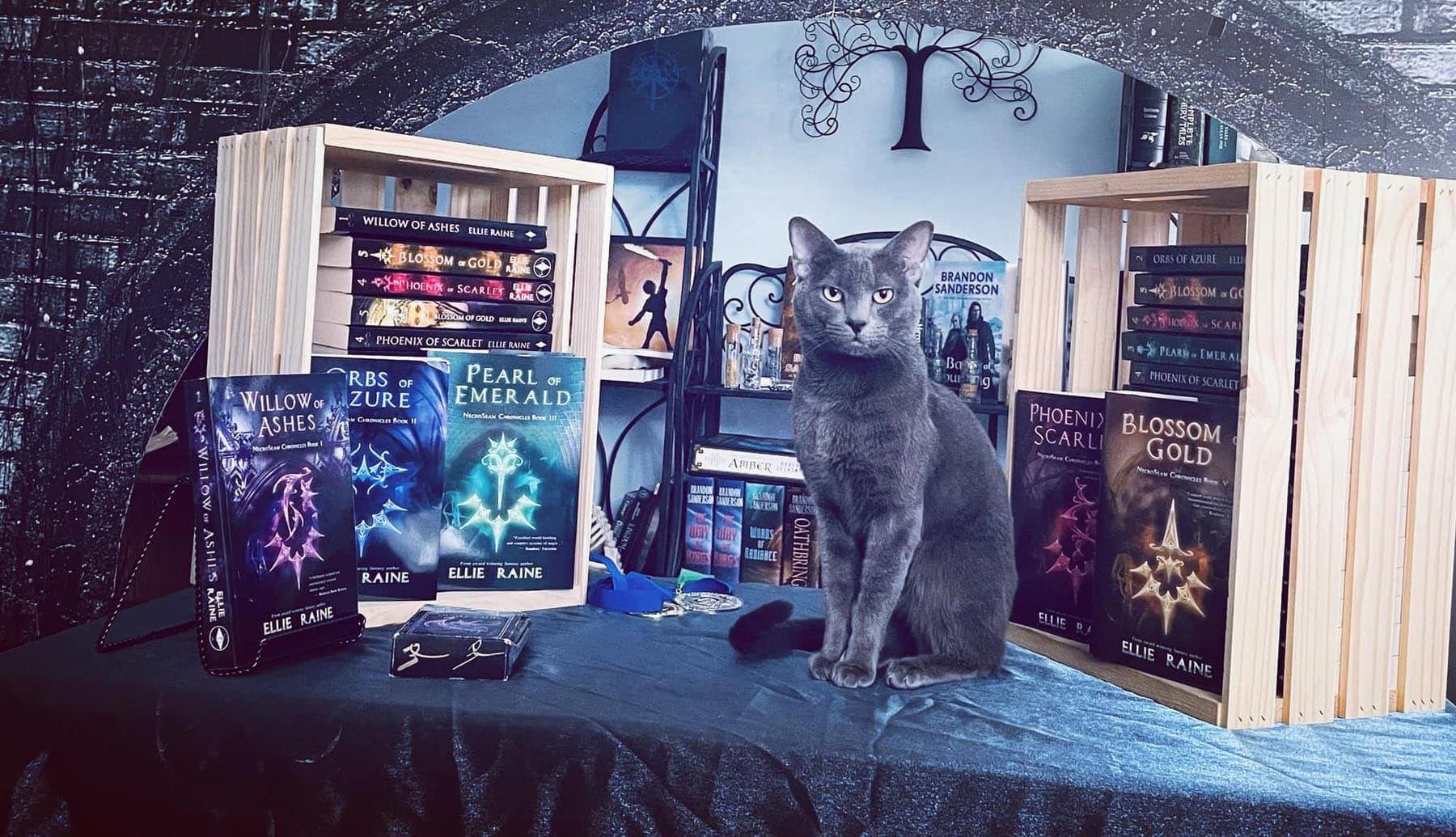
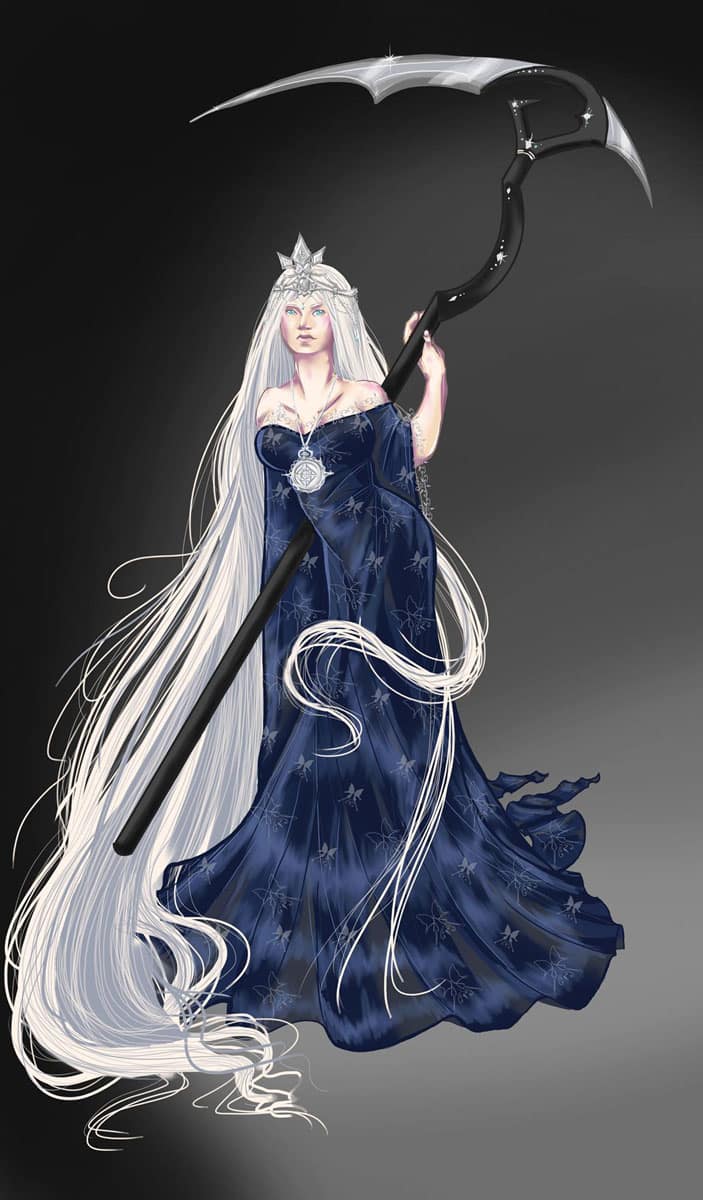
“Part of my process is kind of combining different arts into one unified piece. Because I like having the art with it and it kind of helps me think about and get a sense for who the character is, what their story is, what their personality is… There’s something about combining different creative things into one work that makes you connect with it more. It touches on all the senses.”
Ellie Raine
Timestamp, where to find it in the podcast:
- Intro
- Ellie’s Background
- Art, Music, and Writing
- Ellie’s Creative Process
- Necroseam and Other Projects
- Ellie’s Self-Publishing Journey
- Marketing, Merchandise, and Community
- Closing
Scroll down for the video podcast
Podcast Transcript
[00:00:30] Rico: Hi everyone. This is Rico Figliolini, host of Peachtree Corners Life. We have a great guest today, a Peachtree Corners resident and author Ellie Raine. Hey, Ellie.
[00:00:39] Ellie: Hi.
[00:00:39] Rico: Thanks for joining. Glad you’re with us. Before we get into the interview and introducing Ellie further, let me just say thank you to our sponsor, our corporate sponsor, EV Remodeling Inc. And Eli, the owner. They’ve been a sponsor of ours now for over a year, both of the magazine and and our journalism, and these family of podcasts. So they’re here in Peachtree Corners, based out of here. They’re really well rated on Houzz.com, if you use that to plan your remodeling work and stuff. So check them out. Eli, great guy. He has a great website, so you should go there. You’ll be able to see a lot of what he’s done, videos as well as pictures. Better than most of these remodeling places. And he does design to build, so everything you need under one house. EVRemodelingInc.com is where you can find them. So thank you Eli. So Ellie Raine is an author, she lives here in Peachtree Corners, and just to give you a little background. She has nine titles, at least as of this past summer. Nine titles in her name, right? You have a series, a five book epic fantasy series with two prequels in it. You are a two time winner, recognized by the reader’s favorite in the International Book Awards, and first place in the fantasy division for Writers Digest self-published awards. That was 2019. You know what, I took, you have a personality quiz online to see what knight…
[00:02:01] Ellie: You took it?
[00:02:02] Rico: I took it, yes, and I am blade sworn. A nd the funny part is the author that wrote this Ivy Marie Clark, that interviewed you for our print magazine had taken that same personality quiz and she was the same knight. So must be the same personality, I guess. We’re nurturing people, it was cool. So thanks for putting that there, you guys should check it out. It’s funny because it’s a small world. I saw you at the Peachtree Corners Festival, you had a booth there. And that’s how I got to know you. I bought your book, you autographed it, thank you. The next time I saw you after that was at the anime weekend, Atlanta. You had a booth there at the exhibit and also I was walking that, yeah.
[00:02:43] Ellie: Yeah, it was very unexpected.
[00:02:45] Rico: Yeah. I know. I can imagine. But it is a small world and I was there doing interviews with three voice actors for my podcasts. But tell us, you know, how long have you lived in Peachtree Corners? Let’s start there, a little background about who you are Ellie.
[00:02:59] Ellie: Alright, that’s kind of an interesting question. I actually was born and raised in Norcross, Georgia. And then it kind of became Peachtree Corners sometime around my high school years, I think.
[00:03:14] Rico: Wow.
[00:03:14] Ellie: So technically I’ve been in Peachtree Corners since it existed, I guess.
[00:03:21] Rico: Okay. Yeah, you were probably incorporated into it when the city decided to become a city.
[00:03:27] Ellie: Yeah, basically. It was a very interesting change because there was a lot of questions about what do I put on my address for my mail?
[00:03:35] Rico: Yeah. Yeah. Some people still use Norcross, believe it or not. So even companies do that, so this field, no one knows Peachtree Corners even after 10 years.
[00:03:43] Ellie: Yeah. So, you know, I went to Norcross High even though I didn’t live in Norcross anymore, according to the new city.
[00:03:53] Rico: Well, Norcross is only like one block out of the city at this point.
[00:03:57] Ellie: Yeah. For my old house, well my parents are still there. So we just basically could walk to high school if we wanted to. We never did want to though, because you know, I’m not a morning person, so.
[00:04:11] Rico: No, I can’t imagine. You’re probably more of a night person I bet.
[00:04:14] Ellie: But yeah, I went to Peachtree Elementary, I went to Pinckneyville Middle School, and I went to Norcross High school. Went to college, got married. I think we, moved to Alpharetta at some point for a year. Went to Duluth for a couple years, and now we’re back in Peachtree Corners. And I’ve got a child now, so, it’s all fun. .
[00:04:36] Rico: Is it back to Peachtree Corners because of the Covid? Or did you?
[00:04:40] Ellie: We were looking around for a house and this was right before. I think it was before Covid, or maybe it was during Covid. Either way, it was right before the housing prices just skyrocketed and we found a house in Peachtree Corners right smack dab in the middle of where both of us used to live. Because my husband is also from Peachtree Corners.
[00:05:00] Rico: Wow.
[00:05:01] Ellie: Yeah, we went to high school together and we’ve been dating since then, so.
[00:05:04] Rico: So were you writing in high school? Where’d you get this bug? This, it is a bug, right? Deciding to do this, to write.
[00:05:11] Ellie: What’s weird is I never thought of myself as a writer back in school. I have dyslexia, I’m slightly autistic, and I was a slow reader in my viewpoint. But apparently I was comparing myself to my avid reading family. So according to all my friends no, no, no, you read a lot. But writing wise, yeah, I didn’t expect to be into writing. I think I took like a, some kind of contest thing in middle school for writing and I got like a judge’s award for it. But I didn’t consider myself a writer because it was just a thing I did for school and then I went to college.
[00:05:46] Rico: Okay. I was gonna ask.
[00:05:48] Ellie: Yeah, I went to college for game art and design. So I wanted to create this story into a video game originally.
[00:05:55] Rico: Okay.
[00:05:56] Ellie: And they had a creative writing course in the Art Institute of Atlanta while I was doing that. I didn’t know what to write, so I just started writing my video game idea into a book form and I absolutely loved it. Yeah. So like art is, I have a love hate relationship with it. I really love to draw, but what I really love is just creating the story and creating the characters behind it. So art tends to make me angry the more I do it because it doesn’t fully hit, the way that I want it to. So it makes me angry. But when I was writing, I was calm and I was happy with writing.
[00:06:40] Rico: Happy with writing, that’s good.
[00:06:42] Ellie: Yeah, so that’s when I switched gears and moved on to English and all that.
[00:06:47] Rico: Yeah, okay. That’s interesting. And the fantasy aspect of it?
[00:06:52] Ellie: I was raised on fantasy. It’s basically the main genre that I absolutely adore. I grew up with Terry Pratchett, Discworld series. I grew up with dragons all over the place. Yeah, my parents just have these giant bookshelves all over the house filled with fantasy books.
[00:07:11] Rico: Oh wow.
[00:07:11] Ellie: And science fiction. But I was more into the fantasy stuff because magic, dragons, swords,
[00:07:17] Rico: King Arthur, Harry Potter, Final Fantasy?
[00:07:20] Ellie: Oh yes.
[00:07:21] Rico: As far as games and stuff. And you played Zelda, I’m assuming, and stuff like that?
[00:07:25] Ellie: Yep. All the good classics I guess you would call them.
[00:07:29] Rico: Are you into Game of Thrones? Talking about dragons.
[00:07:32] Ellie: Yeah. I mean, I read the first book. I still need to read the rest of them. I watched the show and everything, but I know that obviously it diverts from the rest of the, the series. So I kind of want more dragons. But you know, that’s me. It doesn’t mean it’s bad. I still like it. Yeah, I still like it. I just wish there were more dragons.
[00:07:51] Rico: Who’s your favorite author today? Like new authors that you might have? Are you still consuming? Like, do you still consume fantasy? Do you still read a lot? So, who now are you reading that’s new maybe or new to you?
[00:08:03] Ellie: New, I don’t know if Brandon Sanderson counts as new.
[00:08:07] Rico: Yeah, he probably doesn’t. He’s been around for a long time.
[00:08:11] Ellie: Yeah. He’s not that new, but like, so Sanderson. Rachel Aaron is another favorite of mine. She’s done The Legend of Eli series and The Heartstrikers series. It’s about dragon shifters.
[00:08:22] Rico: Okay. Okay. But you know, I was gonna say, you, not to jump, but we’re gonna jump around here probably a little bit. You have something in common with Sanderson because when I got to reading some of his stuff, I realized through interviews that he had and blog posts and stuff that the author it’s not just the books. I mean, he makes most of his money, probably more than the books, but in merchandise. And it’s kind of interesting how people have gone to that. I mean, Star Wars with Disney World and Disney World with their merchandise. It seems like if you’re writing, at least today, if you don’t have merchandise that you’re just being a disservice to yourself. Because hey, if I can listen to an audible book and pay one credit for it, I keep wondering how much the author is making on that book. So you have a tremendous amount of merchandise. Do you design some of that yourself or?
[00:09:10] Ellie: I design most, if not all, of it.
[00:09:13] Rico: Okay, but you have necklaces, pendants, and all sorts of things going on.
[00:09:17] Ellie: Yeah, some of it’s handmade with the braided bookmarks and some of the jewelry. Because I just can’t seem to pick one. That’s why I need to, I need something to do with my hands, so I just do it.
[00:09:29] Rico: Is that because of the creative side that you have, the drawing? I mean, do you sketch them out before you do it actually?
[00:09:34] Ellie: Sometimes. It’s usually best if I do, but I don’t always sketch it out first. But it does turn out much better if I do.
[00:09:43] Rico: When you got into writing and fan tasy was where you started, obviously with this. You have five books and two prequels on that series or on your best series, I guess. Tell us a little bit about that. Necroseam, is that the way you pronounce that? Tell us a little bit about how that came to you and what that story’s about.
[00:10:00] Ellie: Yeah. So, it goes back to high school. I just started drawing characters and started creating stories surrounded by these characters that I would draw. And the first one started with the main character, Xavi er. So it’s what I would be doing in math class instead of equations.
[00:10:17] Rico: Okay.
[00:10:19] Ellie: So part of my process is kind of combining different arts into one unified, I guess, piece. Because I like having the art with it and it kind of helps me think about and get a sense for who the character is, what their story is, what their personality is. And I also am a musician. I really like creating songs. I like writing songs into the stories. And if you look at our audio books I actually have the narrators produce and sing. The songs that are in the books, so we’ve got that whole deal going on. I don’t know, there’s something, there’s something about combining different creative things into one work that just kind of makes you connect with it more. It kind of touches on all the senses.
[00:11:08] Rico: Do you have a Spotify playlist?
[00:11:10] Ellie: Actually we do.
[00:11:12] Rico: You do? Okay.
[00:11:13] Ellie: That’s because my bestie slash narrator Krista, kind of started that. And she was like, these are the songs I kind of feel like would go really well with the, like, reading the books. And I was like, this is really fun. So we just started randomly gathering music that could fit with the books while reading.
[00:11:33] Rico: Right. So do you start the process actually drawing a character? Like when you think up of a character, do you sit there and draw the character first?
[00:11:41] Ellie: Most of them, yeah.
[00:11:42] Rico: And do you do, I’m assuming you do some sort of, different writers have different ways of doing this, I guess. From the ones I’ve interviewed and read about. Do you create like a background, the backstory? Do you write that out at all? Do you like create who they are, where they came from? Pros and cons of who they are and stuff? Do you create any of that before you get into the writing some of it? Or does it expand as you write?
[00:12:04] Ellie: A little of both. It really just depends on the character. If it’s the main, like the main crew of the protagonists and their friends that are part of the party, you kind of need to know every single one of them first. Their backgrounds, where they’re coming from, their personality, all of it. When it comes to secondary characters, then it’s a little bit easier to kind of work that in as you’re going. You can just go back in the editing and make it line up earlier.
[00:12:32] Rico: Do you also plot the stuff?
[00:12:34] Ellie: Oh, absolutely.
[00:12:34] Rico: The story ahead of time?
[00:12:35] Ellie: Yep. Absolutely. So, I call it an acre point plotting where I have a master outline of events that I want to happen.
[00:12:45] Rico: Okay.
[00:12:45] Ellie: And I know always where I’m going to end. So I start with where it’s going to end. And I did this for the entire series overall. So I knew where I was going to end. Then I went to figure out how I was gonna begin, and then I had one major point for the middle, which would be book three.
[00:13:05] Rico: Okay.
[00:13:06] Ellie: And once I had those three down, beginning, middle, end. Or, end, beginning, middle, however you want to do it. Once I had those down, I would kind of go into sort of more of a micro bullet point anchorings for beginning, middle, end, for the beginning. Beginning, middle, end, for the middle. Beginning, middle, end, for the end, type of thing. Sometimes I had to change what happened and then I had to like move it around because I would get to a plot point that was supposed to happen like books later. But once I got to the point in the writing itself I realized, oh, I’ve gotta do this now. So sometimes you’ve gotta be a little bit flexible with it, because otherwise if it doesn’t feel natural while you’re in the story, then it’s probably not going to translate well for readers.
[00:13:55] Rico: Not surprising. It seems like every author, the book also is alive, right? So the book is actually guiding, almost like you’re living there. It’s almost like one author I know said they can’t wait to see where their character’s gonna take them. I mean, what’s your, as far as your process layout, let’s go there a little bit. Do you have a word count or an hour count? I mean, how do you pace yourself and where do you put yourself when you write your stories?
[00:14:17] Ellie: I try and do one sentence a day. Some days I can’t do anything because you know, administration. Gotta do all that social media work.
[00:14:28] Rico: Did you say one sentence a day?
[00:14:31] Ellie: One sentence. That’s the goal. So I set small goals that are very achievable.
[00:14:37] Rico: Okay.
[00:14:37] Ellie: And it’s actually a trick. It’s like a brain chemistry trick, loophole, creating productivity.
[00:14:44] Rico: Okay.
[00:14:44] Ellie: So one sentence a day goal. You do the one sentence. And because you have achieved the goal you set out to do, you get a hit of dopamine in your brain. Which you know is like, oh, I finished my goal and now you feel great. You’re feeling wonderful. And guess what? Now you feel so good that you can keep going.
[00:15:07] Rico: That is interesting. That actually, I can see that.
[00:15:10] Ellie: And the more you add onto it, the more sentences you do. It’s like, I got so much done today. I exceeded my expectations of what I was going to do today. And it kind of just tricks your brain into thinking that you’re, you can do more. And you did like such a great job that you’ve just gotta keep going. And it gets you excited about it. So it’s like a fun little trick.
[00:15:33] Rico: Yeah, I like that. I think I’m gonna use that on my daily thing. I have a to-do list that grows every day and sometimes there’ll be days where I’ve done a lot of work. But none of it is on my to-do list. And I can see that if I do one of those items on that, I’ll probably get that dopamine feel and keep going.
[00:15:52] Ellie: Yeah, it’s, it is a fun work around.
[00:15:54] Rico: Yeah. And so in the process then, how long does it actually take to complete your first draft of a novel? I know the rest of it could take long, depending on edits. But on your first draft of a novel, how long does that take?
[00:16:07] Ellie: Well, back in the day, it used to take three months to finish a first draft, then another three months of editing. So six months to basically come out with a book. But nowadays with a child, it’s been a lot harder and much slower. So, it takes a lot of time to finish something when you don’t have childcare. So, yeah.
[00:16:30] Rico: Yeah, I can imagine.
[00:16:31] Ellie: So. It’s, I don’t even know yet. I’ve been able to finish a couple short stories, but as far as book-books go, I don’t know yet. Because I’m still in the middle of like three of them.
[00:16:43] Rico: So are you doing, so the short stories that you’re doing, are you getting those published online? Or how are you doing, how do you handle that with your readers?
[00:16:53] Ellie: Well this recent one just got accepted into an anthology. But I can’t really disclose much of that, because you know, NDAs and all that.
[00:17:01] Rico: Sure.
[00:17:01] Ellie: But so that’s going through, not myself. That is for an anthology. The other short story I have, I don’t know what to do with it yet. It’s just kind of sitting there in the ether. Waiting for some kind of opportunity for it to have a purpose.
[00:17:18] Rico: Okay. But it’s good to keep writing though. And I didn’t even think about short stories being a good conduit. Have you ever done novellas?
[00:17:26] Ellie: Oh yeah. Actually I’ve done, let’s see, 1, 2, 2 novellas. I guess this one up here is more of a traditional novel, so yeah. So my novellas range about 40,000 to 45,000 words. And one of them is the prequel to the main series, and another one is actually the first book in a series of a paranormal noir.
[00:17:53] Rico: Okay. Are you using that to sort of jumpstart that series? I’m imagining it’s going to be a series of books.
[00:17:59] Ellie: Yeah. I mean, at first I actually wrote this for one of my publishers a couple of years ago. And it was supposed to be 30,000 words according to the contract, but I ended up overshooting to like 40, 42,000. And then eventually I just did a second version for myself.
[00:18:18] Rico: And we’ll have a link in the podcast for people to go check the books out. Now, you had an interesting way I think of going about this really. You got published in the traditional sense of the word, a traditional publisher. But then you decided to go the self-publish route after that. Do you want to share a little bit about that, how that worked for you? I mean, other people that might have an interest in writing or are writing might want to look at and listen to this to see what you did.
[00:18:43] Ellie: Right. So I did start with two traditional publishers for two different stories. And for the main fantasy series the first book, it was with a small publisher and things were great. And then the second book came. It came time to publish the second book and they came back saying that it was too big for them to afford to print. So, they had to make it an ebook only or I had to split it in half. And I tried splitting it in half, and then I realized that splitting it in half for the second book meant I would have to do that for all the other books later in the series because they were all as big or bigger than that book.
[00:19:28] Rico: Right, right.
[00:19:29] Ellie: So I tried doing that, splitting everything in half. And you know, trying to fill in the gaps of, you know, oh, well now this needs a conclusion. Now this one needs a beginning and things like that.
[00:19:39] Rico: Right.
[00:19:40] Ellie: And it just was not working. It kind of broke my excitement about the story. I basically fell out of love with it being broken up like that. Because when I outline each of the books, I’m very exact about where the arc is, where it’s going, and what is considered like the whole arc. And splitting it in half just kind of threw off the rhythm and it threw off the pacing and it just felt soulless. Because I kept trying to push in just this random, empty spacing of content to try and make it the right size for compensation and it just was not working. So eventually I asked for the rights back for book one and I just took it back and put everything back together and just did it all myself.
[00:20:33] Rico: Wow, okay. So now you’re self-publishing, but people can find your books on the traditional places, right? Amazon, you even have all your books, or a decent amount on Audible, I guess people can listen to them too.
[00:20:47] Ellie: Yes. We have two audio books out right now. We are more than halfway through the third one. So it should be out by the end of this year or January latest. I can’t properly describe how much I love these audio books. They’ve ruined audio books for me. Like, my narrators are just so amazing that I actually like the audio books better than the actual physical books.
[00:21:14] Rico: That’s funny.
[00:21:14] Ellie: So yeah, I cannot recommend the audio books enough. And you know, check out my narrators, they are amazing voice actors.
[00:21:22] Rico: Some of these, I mean, when I listen to audible books, I mean some of them are performances.
[00:21:27] Ellie: Yes.
[00:21:27] Rico: That’s what you have to look at them as. They’re not just reading the story, they’re performing that story.
[00:21:31] Ellie: Yeah. And for this story, which is very much action adventure, it really suits it.
[00:21:37] Rico: That is cool. So are you working along the same chronicles that you’ve started or are you looking to getting to a different storyline? Are you launching a new story?
[00:21:48] Ellie: Both. I’ve got some extra stories, different timeline in the Necroseam world. Different characters planned, ready to go. Some of them I’ve started. But I have other stories in other worlds that I’ve been kind of working on.
[00:22:03] Rico: Okay, alright. The writer never stops. And you’ve also written a book for young readers as well. So I think that’s called A Ballad of the Ice Fairy?
[00:22:13] Ellie: Yes, I also did the illustrations for that.
[00:22:15] Rico: Beautiful work too. I was looking at it. Very nice work. And that’s available as well on demand. I’m assuming you self-published that as well?
[00:22:22] Ellie: Yes. We actually had to go through a different printer other than KDP Amazon or IngramSpark. We didn’t like the quality of their images and their paper wasn’t really that good for children’s book illustrations. So we went with a different printer and right now you can only get it directly on our website.
[00:22:43] Rico: Oh, as a digital edition? Oh, you mean the book itself?
[00:22:46] Ellie: The book itself.
[00:22:47] Rico: Okay. When you publish by a traditional publisher they have a marketing department, but the author still has to go out, do book signings, do your own promotion. You have to cultivate your own followings too. The traditional publishers, I don’t think do that as much as they used to anymore. But so you’re actually also going to a lot of different events. We saw you, like I said, at Anime Week in Atlanta, and that was surprising. But not surprising because a lot of fantasy writers do those types of things. But it looks like you’ve been, since the summer, I guess you’ve been to places like Savannah Mega ComicCon, Key City Steampunk Festival, Multiverse Fandom Convention. I haven’t heard of that one. The Conjuration, which is November fourth and sixth, just passed. And people can listen, find you, follow you on most of the social media, I guess. TikTok, Instagram, Facebook, YouTube. Do you do trailers for your books?
[00:23:39] Ellie: Yeah I’ve done a couple trailers. I kind of prefer the audiobook trailers now to be honest, because they just, they’re more engaging.
[00:23:46] Rico: Sure. And people can go online to your store though. I mean just like Sanderson sells swords and other things for his stuff. Which is interesting because he does it out of, I think he does it out of his house or something, is what I understood. Or maybe the pick and pack of it is somewhere else. Do you find that’s actually helped you more?
[00:24:04] Ellie: Oh my gosh, yes. Man, having the weapons is one of the dreams, man. One of the dreams. Just need the, need a bit more funding for that, so.
[00:24:14] Rico: Yeah, yeah. It’s a lot different. But the jewelry part and some of the other stuff you do it’s kind of neat to draw people right into that story. I had seen someone else, I think it was a local Georgia writer that does novels. And she actually created jewelry specifically for each of the books that she wrote. So it comes actually with that piece of jewelry and the book packaged together which is kind of interesting. So do you want to share anything else with us as far as writing methods or other things that you do? Have you gone back to Norcross Highschool? By the way, the media center, if you’ve ever gone back to talk about your books to students there?
[00:24:48] Ellie: I’ve never considered that. Is that a thing I can do?
[00:24:52] Rico: Yeah. Yeah, you can. I’m pretty sure you can. I know.
[00:24:55] Ellie: I don’t even know who to talk to about that, to be honest.
[00:24:57] Rico: You probably go to the head of the media center, at Norcross Library. They had Mayra Cuevas I think. She was a CNN producer and she wrote a book, a series of books, I think. And there were young adult novels actually from the Hispanic, Latinx point of view. And she was one of the speakers a couple of years ago there. But they do sometimes do that. And I know the Gwinnett Public Library actually does, not only in person, but online having authors come in and stuff like that. It’s kind of neat. I think young kids or adults, I mean, 30% of young adult novels are read by adults. I think those are adults that want to get back into their young, into the youngness of where they were, maybe.
[00:25:35] Ellie: Yeah, I think it’s also because young adult books don’t take themselves too seriously. So they…
[00:25:40] Rico: Yes.
[00:25:41] Ellie: They know they can have more fun with it. So if the author is having fun, the reader’s gonna have fun.
[00:25:45] Rico: Right. For sure. I mean, I’m into, I have three kids and I’m into, we watch everything from Studio Ghibli, every movie. And because of them I’m into anime and there’s a whole variety of anime from light slice of life to the stuff like Death Note. I mean, they’re all different from American animation, that’s for sure. So what else can you share with us as far as maybe that we haven’t touched upon as far as writing style or what you do as a writer?
[00:26:09] Ellie: As a writer? I mean, I feel like we’ve kind of covered that pretty extensively, but I could talk more about why the merchandising is so important.
[00:26:17] Rico: Yeah, let’s do that. How did that start?
[00:26:20] Ellie: I mean, this is just my observation from it, but the reason why I think merchandise is so important is mostly because it’s an indication that there is a community or can be a community created from this work. And I think having a community around a series is what makes a series successful. It kind of brings people together, it gives them something to talk about it kind of helps them get into the immersive nature of that story and of that series.
[00:26:51] Rico: Interesting. One of my kids, she just finished her masters in psychology and she’s into fantasy books and stuff like that. What she grew up on was like the Warrior Books, these are cat warriors and stuff. And what she’s found is that she would go online and play some fantasy role games and stuff, even now, she’s 24. Because it’s fun it’s mindless sometimes. And as she’s doing it, she’s meeting people and she’s talking to them. Like there’s, could be like, she has a group of, I think six or seven people they have discussions unrelated almost to what they’re doing. It’s just a community they built around that. She’s starting an online discord book club to talk about some of the books they all have in common that they’d like to read. Which is again, social media, so and that’s where I wanted to get to. Social media is kind of an interesting platform place that writers did not have before. And I don’t even as it was coming in, I don’t think, I mean yes, Stephen King will be on Twitter and he has millions of followers and he can tweet stuff. But do you find social media is helping you? Which platforms do you find more beneficial to you?
[00:27:49] Ellie: Yeah. Social media definitely, I think is the only way that has helped any kind of visibility, online at least. Conventions are always going to be the top, like biggest visibility jumpstarters. But online social media is pretty necessary. I haven’t had too much success with Twitter, but I have had some people meet me from Twitter specifically who came to the shows to come see me because they followed me on Twitter and or TikTok or Instagram. So there are some individuals that I do actually only talk to in those platforms because that’s where they are. So I think as an author, you need to go where your audience is.
[00:28:35] Rico: Okay. Makes sense. Do you use Reddit at all?
[00:28:38] Ellie: I’m scared of Reddit. It terrifies me.
[00:28:43] Rico: Dark web. There’s an underlying layer in there somewhere.
[00:28:49] Ellie: Yeah. I used to go on there a lot to try and figure it out how it worked, you know?
[00:28:55] Rico: Right.
[00:28:56] Ellie: But, after learning about it, it just terrified me more.
[00:29:00] Rico: I thought NextDoor, which is one of these neighborhood apps was bad, but Reddit is really bad. It’s just like, my God.
[00:29:07] Ellie: Well, if there’s a lot of fireworks that go on around here, so you know, every time you see a post on a Neighborhood or something, or Ring, it’s just like, I heard gunshots. And it’s like, yes, those are really fireworks.
[00:29:23] Rico: That’s true. I didn’t think about Ring after, I just installed that and I didn’t realize I was part of a community all of a sudden. I’m getting ring messages like your dogs, some dogs missing or gunshots. Yeah. It’s unbelievable.
[00:29:34] Ellie: Oh yeah. No, it’s been super useful whenever our cats escape. It’s like, hey, we need our cat, have you seen him?
Right, right.
[00:29:41] Rico: You know the other thing that goes on, one of my other kids also, he’s 19, he actually has been writing since he was 16. So he goes online. He used to use, I think it was WhatsApp, was one of them, was one of these online writing communities, you could serialize chapters and stuff. And he’s still writing. He writes every night. He’s 19 and he hopes to be able to be a creative writer. To make a living at it, that’s the thing.
[00:30:02] Ellie: Yeah, I was about to say, it sounds like he already is.
[00:30:05] Rico: Well, he’s, I mean, he has 200 followers right now that are like his beta readers essentially. And he is into fantasy and sci-fi. I think he’s shifting a little bit more to sci-fi than fantasy. But it is a field that I think today, I mean, he looks at it and says can I make a living at this or not? If I can’t, what do I have to do to make a living to be able to still write regularly? How do you find that? How do you balance that? You have a child, I know it takes you longer now to write. Your child will get older, be in school at some point, preschool and stuff. So it will get easier a little bit. But how do you juggle life like that?
[00:30:40] Ellie: With much difficulty and defiance. Basically it’s one of those things where if you really love something, then you basically have to fight for that time. You have to fight to find time to do it. If you really love it that much and the things that are more important to you, you will find a way and a time to do it. But I can’t really give advice on how to go about that because everybody’s situation and brain chemistry is different. So I guess the best I can say is you’ve just gotta find what works best for you. Find the method that is uniquely perfect for you.
[00:31:25] Rico: I think you gave good advice before about that one sentence goal though.
[00:31:30] Ellie: It’s a good trick.
[00:31:31] Rico: Yes, and I can see people doing that. I can see, you get that one sentence done and you feel like, wow, okay, cool.
[00:31:37] Ellie: It’s worked for me so.
[00:31:39] Rico: Well, we’ve been talking to Ellie Raine. She’s a self-published author, that has nine books, I think, right? Nine books to your name. Merchandise. She’s going strong.
She’s already, well, third audio, audible book, coming out. We’re looking forward to seeing a lot more from you. I do appreciate the time you’ve given us. Why don’t you tell everyone that might be interested where they can find more. We’ll have these links, but where should they go to find more about you?
[00:32:04] Ellie: Sure. You can go to either EllieRaine.com or Necroseam.com. That is N-E-C-R-O-S-E-A-M.com. So we have a blog. You can find me on TikTok, Instagram, Twitter, Facebook. It’ll all be on the website.
[00:32:22] Rico: Great. And if you have any questions for Ellie, obviously message her through through social media or put comments if you’re listening to this on Facebook. You can put your comments in that in the spot on Facebook. Again, thank you Ellie. I appreciate your time. Good luck and have a great career. Looking forward to seeing more books from you.
[00:32:40] Ellie: Me too.
Related
Arts & Literature
Experience Shakespeare in the Park with Contemporary Classics’ Twelfth Night
Published
1 month agoon
April 11, 2025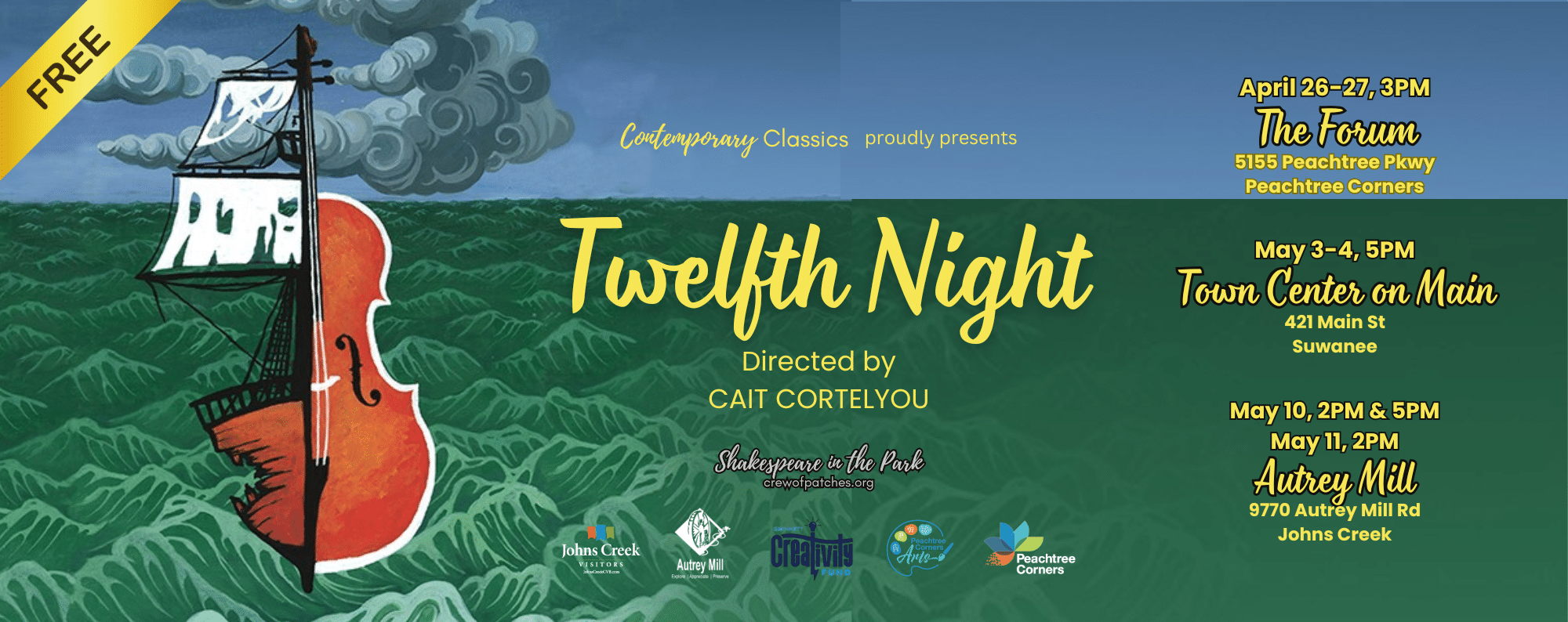
Contemporary Classics Theatre will present Twelfth Night, a free “Shakespeare in the Park” experience at three beautiful outdoor venues in north metro Atlanta
Twelfth Night, William Shakespeare’s romantic comedy of mistaken identity, will play at three beautiful outdoor venues in north metro Atlanta from April 26 to May 11.
Directed by Cait Cortelyou, known for her award-winning feature film “Ask for Jane,” Twelfth Night is a rollicking ensemble comedy explores unrequited love, misperceptions and the instability of gender.
Set in the coastal town of Illyria, young Viola survives a shipwreck and finds herself alone, believing that her twin brother died at sea. Disguising herself as a man, she finds work with the Duke Orsino, quickly falling in love with him. Orsino, however, is in love with the Countess Olivia… and Olivia quickly falls for Viola.
Meanwhile, Olivia’s steward Malvolia has bullied the household for the last time — and the staff is out for vengeance.
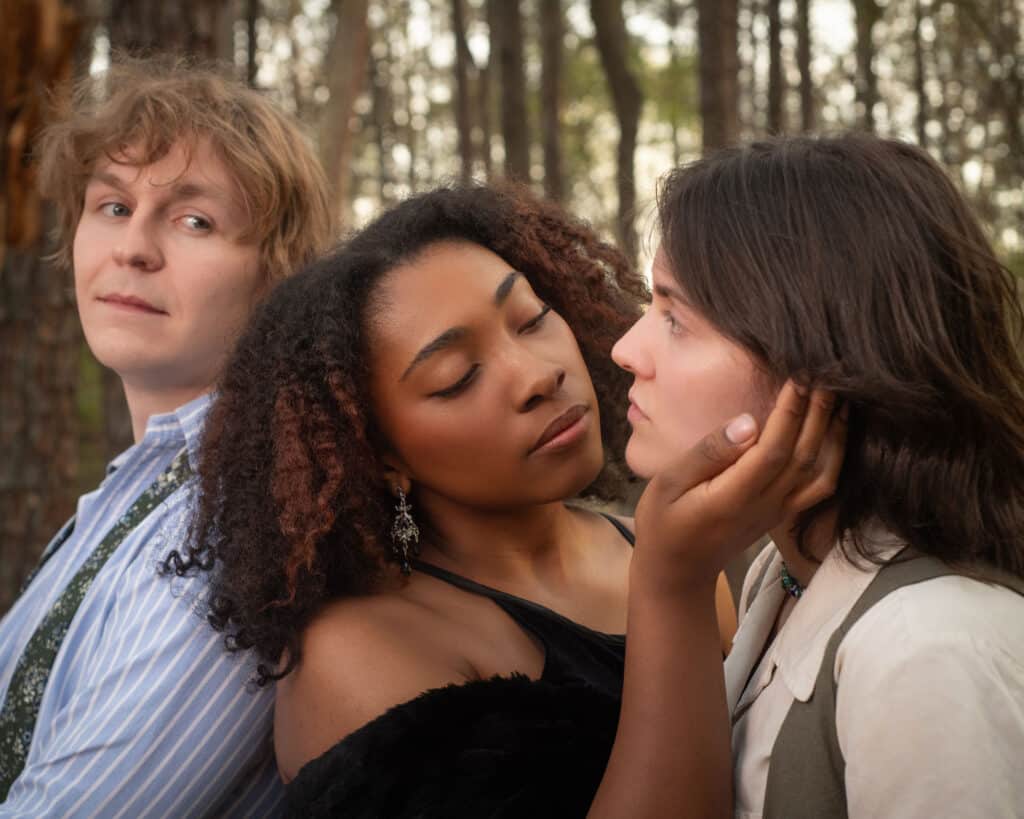
This timeless production of Twelfth Night features Allen Cox, Carl Fisk, Ryan Hutchins, Shem Louis, Susanna Lyne, Steven Medina, Matt Metzger, Danielle Montgomery, Macros Nora, TJ Sanson and Elliott Posadni as one of the first transgender actors to play Viola.
It also features costumes by artist Jordan Hermitt and production design by Sage Kim Gray.
Locations, dates and showtimes
The Plaza at The Forum Peachtree Corners • April 26–27 at 3 p.m.
Audience seating and a special musical performance will start at 2:30 p.m. Please note that seating is limited; arrive early and/or bring lawn chairs or blankets. Food and drink are available for purchase at the venue.
Town Center on Main, Suwanee • May 3– 4 at 5 p.m.
Audience seating and a special musical performance will start at 4:30 p.m. Please note that no seating is provided; bring lawn chairs and blankets. Coolers are welcome (no alcohol). Food trucks will be onsite at the venue.
Autrey Mill Nature Center, Johns Creek • May 10 at 2pm & 5 p.m.; May 11 at 2 p.m.
Audience seating and a special musical performance will start at 1:30 p.m. on both days and at 4:30 p.m. for the evening show on May 10. Limited bench seating only. In case of inclement weather, the show will move from the amphitheatre to the open-air Pole Barn nearby.
Admission to the shows is FREE. Register online for tickets.
About Contemporary Classics
Contemporary Classics exists to challenge and transform classic Western theater traditions by creating an inclusive community of diverse people, ideas and cultures. They believe that classic work is made even greater when performed by a larger variety of artists — especially those who have been marginalized by Wester theatre traditions — including women and people of color.
With no permanent home, the theatre company partners with places such as public parks for performance spaces. This “homeless” state is one of the reasons they call ourselves “a crew of patches”— they travel from “patch” to “patch” with their shows.
The name also comes from a line in A Midsummer Night’s Dream, and reflects the “motley” coat of a Shakespearean clown (or fool), created by sewing patches of old or discarded clothing together in a mishmash of textures and colors, like a patchwork quilt.
Fools, or “Patches,” transcend societal norms by being simultaneously a part of society and outside of it, giving them the ability to examine and comment on it.
For more information, visit crewofpatches.org.
Related
Arts & Literature
From Food Creations to Handmade Jewelry: Wesleyan Kids Prep for Artist Market 2025 [Podcast]
Published
1 month agoon
April 7, 2025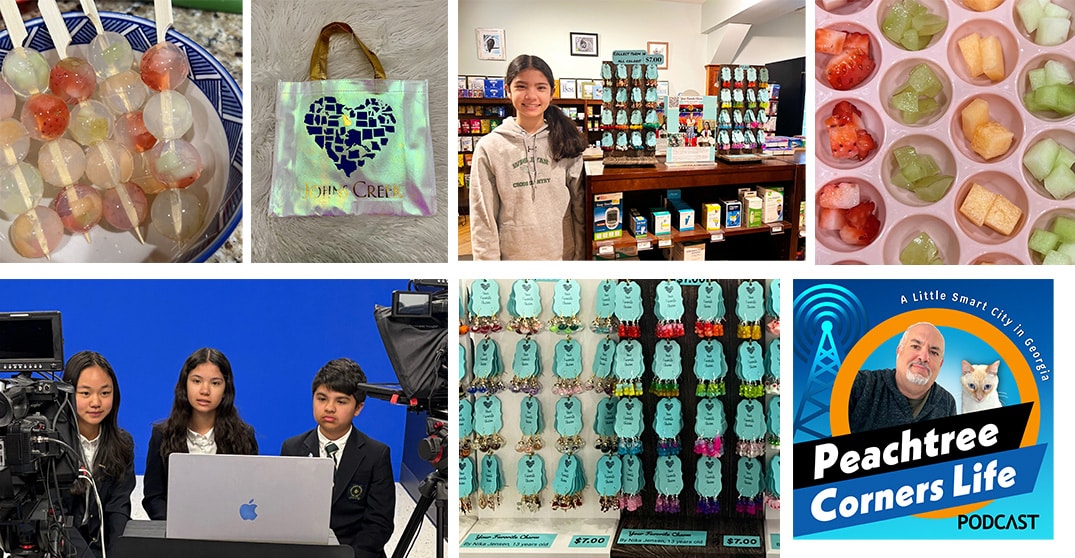
In this episode of Peachtree Corners Life, host Rico Figliolini spotlights three remarkable student artists featured in this year’s Wesleyan Artist Market. Eighth graders Kimberly Wang and Nika Jensen, along with sixth grader Carter Jensen, share their creative journeys—ranging from edible art like fruit jellies and peppermint bark to handmade jewelry and custom-designed bags.
Kimberly talks about her love for food art and balancing sweetness with fruity freshness, while Nika and Carter discuss building a jewelry business that also gives back—donating proceeds to families in the Philippines. This isn’t just an artist market; it’s a showcase of purpose-driven, globally inspired young talent. The event runs April 25–26 at Wesleyan School and is open to the public.
Podcast Takeaways:
- Kimberly Wang creates handmade edible treats, balancing flavor and freshness for the show.
- Nika and Carter Jensen co-run a jewelry and fashion accessory business, inspired by global travel and cultural experiences.
- Nika donates part of her proceeds to support families in the Philippines.
- All three students are deeply involved in extracurriculars—from musicals, marching band, math club, and academic bowl.
- The Wesleyan Artist Market features 24 student artists and over 70 professionals—open to the public April 25–26.









Timestamp:
00:02:19 – Student intros and extracurriculars
00:03:06 – First-time participants and motivations for joining
00:04:13 – Kimberly’s edible art and recipe testing process
00:05:16 – Nika and Carter’s jewelry and bag design business
00:07:06 – The reward of watching people enjoy your creations
00:08:20 – Donating art profits to support families in the Philippines
00:10:39 – Future aspirations in medicine and law, with art as a passion
00:12:06 – Behind-the-scenes logistics of preparing for the market
00:13:25 – Global travel inspiration: 73 countries and counting
00:17:19 – Where the students draw artistic inspiration
00:20:04 – Custom requests: From peppermint bark to Lego earrings
00:21:16 – Anticipation and excitement for this year’s market
00:22:29 – Reflections on Wesleyan and the artist experience
Transcript:
00:00:01 – Rico Figliolini
Hey, everyone. This is Rico Figliolini, host of Peachtree Corners Life. We have a great set of guests today. Because of the upcoming Wesleyan Artist Market, we thought we’d do some interviews with student artists. Three of the 24 that are going to be at Wesleyan Artist Market. So they’re with me here today. So we’re going to get right into that shortly. I just want to say thank you to our corporate sponsors. So I want to say thank you to EV Remodeling, Inc., based here in Peachtree Corners. The owner is Eli. Him and his family live here. They’re great. They do a lot of design work, design your space. Essentially, any home remodeling you need from whether it’s your kitchen, your bathroom, or a whole house remodel, or even an addition to your home, think about it, whatever you need, Eli can handle. So check them out. Go to evremodelinginc.com and find out how they can design your space and your life. Our next sponsor just came on, and they’re Vox Pop Uli. I want to thank them for joining us as well. They deal with all sorts of things you can imagine putting your logo on, similar to a little bit about what these kids do, right? They’re creating artwork. They’re creating a brand for themselves. And so this is what Vox Pop Uli does, right? They’ll take your brand and bring it to life. Essentially, anything that you can think of that would go on apparel, whether it’s sweaters or T-shirts or wherever you want to put your brand engraving, your logo, what object you want to put it on, even vehicle wraps. So if you’ve got a truck, you want to put a whole wrap around it, check them out because they can do that. They’re here in Peachtree Corners and they’re called Vox Pop Uli. So visit their website. I’ll have the links in the show notes as well. So thank you guys. I appreciate your support. So now let’s get right into it. Let me introduce our three artists, great Wesleyan students. Can’t wait to start talking to them. We have Kimberly Wang first on your left, on my left, and Nika and her brother Carter Jensen, who work together creating the artwork they do. So I’m going to ask you guys just to, you know, give me a little background. Tell me who you are, your grade, what you do, extracurricular, stuff like that. This way our audience can get to know a little bit more about you. So let’s start with Kimberly Wang. Hey, Kimberly.
00:02:19 – Kimberly Wang
My name is Kimberly Wang. I’m in eighth grade this year, and outside of Artist Market, I do marching band, and I also do the musical production this year, which is Matilda.
00:02:31 – Rico Figliolini
Excellent. What about Nika? How about you?
00:02:34 – Nika Jensen
I’m also in eighth grade. My name is Nika Jensen, and apart from doing the Artist Market, I do cross country. I’m also in Matilda this year, and I also do math counts, which is a math club.
00:02:47 – Rico Figliolini
Okay, cool. And Carter?
00:02:49 – Carter Jensen
Hello, my name is Carter Jensen. I’m in the sixth grade. And outside of the artist market, I do academic pool and I also do basketball.
00:03:00 – Rico Figliolini
Excellent. Alright, cool. So have you guys ever done the artist market before? Is this the first time?
00:03:06 – Kimberly Wang
This is my second year doing it this year.
00:03:08 – Rico Figliolini
Second?
00:03:10 – Nika Jensen
Yeah, this is our first year because we’re new students this year.
00:03:13 – Rico Figliolini
Alright, cool. What inspired you to get into it, Nika?
00:03:17 – Kimberly Wang
Well, I had my own business before we came to Wesleyan and so I thought that the artist market is a good way to like show my business to other people in our community. So yeah.
00:03:30 – Rico Figliolini
And you brought in your brother Carter to help you with?
00:03:35 – Nika Jensen
Yes, sir. He’s also part of the business.
00:03:39 – Rico Figliolini
Alright cool. Okay so, Kimberly. Food. Food is art, right? I’m sure your mom would probably say, it’s food, just eat it. But you’re playing with your food, essentially. What they used to tell you not to do, right? So when you create your food art, what do you think about? How do you go through this? How do you choose what you do and what do you exactly do?
00:04:13 – Kimberly Wang
So this year, I am making fruit jellies and peppermint bark. And when I think about what creations I want to make for the artist market, I go online and I look through like, what are some popular desserts that a lot of people like? And once I like choose my items, then I go through
the recipe and then I do a lot of trial and errors to make sure that like the products are like healthy and they taste well.
00:04:42 – Rico Figliolini
So they have to be edible, right? Because this is edible art?
00:04:45 – Kimberly Wang
Definitely, yes.
00:04:46 – Rico Figliolini
So are you eating a lot of the edible art before you get to what you need?
00:04:50 – Kimberly Wang
Not really. I don’t usually taste a lot of the food. I let my family taste it.
00:04:56 – Rico Figliolini
Ah, good. I like that. Yes. Get them to participate. Cool. So edible art, that’s one way of doing it. Jewelry, that’s something else, right? Wearable. How do you guys, Nika, Carter, how do you get to the place of what you do?
00:05:16 – Nika Jensen
So I started my business when I was 11 years old and it started like I got my first jewelry making kit and I kind of just expanded from there. So like I usually use Amazon to search and find like the prettiest designs like of earrings and pendants and get opinions from other people like my mom and my family to see like if they think it’s like wearable and if they like it. So I browse on Amazon for a while and I find like the best and high quality products and then I hand make them at home usually like every day after I come home from school so and my brother he does something else and he can tell you about that.
00:06:01 – Carter Jensen
I, my sister, she got a Cricut machine for, like, her 12th birthday, I think. And started making these, like, iron-on bags with the Cricut machine and, like, making them based on, like, Georgia and, like, Wesleyan and designing it based on fashion.
00:06:19 – Rico Figliolini
Alright. Cool. So let’s get back to Kimberly. The food that you do. Do you have particular flavors you like? Do you have particular areas that you stay in?
00:06:33 – Kimberly Wang
So this year I’m trying out like something more sweet with chocolate. But last year I definitely went for more of like the fruity side. And I think I like to keep it like a balance. So that way one is not overpowering the other. My personal favorite will probably be fruit because it’s healthy. And I mean, it just tastes good in general.
00:06:56 – Rico Figliolini
Okay. Alright cool. What’s the most rewarding part that you can think of, of making edible art?
00:07:06 – Kimberly Wang
Well, I mean definitely like you said before you get to eat a lot of food. I mean, I did say before that I don’t eat a lot of the creations I make, but sometimes I still do eat it. And so I think it’s also really rewarding to see like people try out your creations and see like their reactions to what they think of it.
00:07:27 – Rico Figliolini
So when, I know I’ve spoken to other artists when they sell their artwork like paintings or stuff like that they get a chance to see it sometimes when the fan that bought it if you will, would send them a picture of where they hung it right? Yours disappears right?
00:07:45 – Kimberly Wang
Yeah, exactly.
00:07:47 – Rico Figliolini
Yeah I guess, there’s no way to, short of doing a selfie with it or taking pictures of it, there’s no there’s no permanency to it so how does that feel?
00:07:57 – Kimberly Wang
I mean well as long as the people enjoy it that’s good. And I mean I think mainly it’s about like the memory that you have of having the food and if you like it then it stays as a good memory for you and if you don’t then I mean you can always try out different things.
00:08:20 – Rico Figliolini
Okay. Nika, Carter, as far as the jewelry goes the, you’ve used it to raise money to support children in the philippines? yes
00:08:29 – Nika Jensen
Yes sir.
00:08:31 – Rico Figliolini
Is that, is that how you started this when you were 11? Is that the reason?
00:08:35 – Kimberly Wang
No, so I was like 11 during the pandemic. So I was always looking for a way to express my creativity. And so that’s how I started my own business. And so I was selling at my uncle’s pharmacy and I was saving up the money to use for like college or for like other events later on in my life. But this last year and a half before this school year, we were living in the Philippines. And so I was really touched by all of the families there. And we even did something similar where we gave out food and canned goods over Christmas to poor families there. So that just
really touched me. And so ever since we got back to America, I’ve been donating part of my profits to other families in the Philippines.
00:09:24 – Rico Figliolini
Carter, did you end up going on that trip as well?
00:09:28 – Carter Jensen
Yeah, I was with her. We stayed there for about a year and a half. We also did schooling there.
00:09:36 – Rico Figliolini
It’s interesting brothers and sisters, I have three kids and you know growing up brothers and sisters always there could be dynamics there. So how do you get along? Do you ever say to your sister, I don’t know about that. You know that might not look as good, that might not sell. Do you give good feedback? I mean how do you praise her or how do you work together?
00:09:58 – Carter Jensen
She’s more of the leader of the business so like I usually just like try to like agree with her and like yeah.
00:10:12 – Rico Figliolini
Alright that’s cool well you need a leader of the pack sometimes right? So Nika the artwork that you do, you know this is part of what you do you’ve mentioned other things you do right? I know you’re young, you all are, you know you’re not old enough to really think well maybe you are to really think what you want to do with your life right? Is art something that you want to keep as part of what you’re doing in your life?
00:10:39 – Nika Jensen
It’s definitely something that’s of great value to me, but I kind of want to pursue the medical field, but art is also really important to me.
00:10:49 – Rico Figliolini
Okay. Sounds good. Same question to Kimberly. What about you? How do you feel about the work you do?
00:10:57 – Kimberly Wang
I definitely enjoy making food, but like Nika said, I was also really interested in the medical field. And so like I’m not really sure if I’m going to continue pursuing this. But I mean it’s definitely brought me a lot of joy while doing food art.
00:11:15 – Rico Figliolini
Okay. Medical field both of you, that’s cool. What about Carter? How about you? 00:11:19 – Carter Jensen
I kind of like, I like doing art it’s one way to like express your creativity as my sister said. But I also kind of, I’m not really sure what I want to do when I grow up, maybe be a lawyer.
00:11:33 – Rico Figliolini
Okay. Well, artwork gives you a chance, right, to play a little bit, to be able to also see how people, like Kimberly, like you said about how when people see your food or taste your food and your food art, if you will, and it gives you a chance to see how people appreciate what you’re doing, I think, right? The challenges of making food art and keeping it fresh and making sure you’re going to deliver it on the right way I guess at the Wesleyan artist market, how do you how do you handle that part of it?
00:12:06 – Kimberly Wang
So for me the night before each day of the selling I would stay up really late and I make all my products so they’re all fresh and they’re all new. Because I want the best for the people that are eating the food because I don’t want anything to go bad overnight and so I make sure that it’s always new products and I make it, yeah.
00:12:32 – Rico Figliolini
We don’t have the same issue with the jewelry that you do, Nika. So that could last forever, right? But putting it together, sourcing the supplies, right, of what you do, the logistics of it, I guess. How do you handle that? Like getting all the materials together? Do you order it all on Amazon?
00:12:52 – Nika Jensen
Yeah, I order like 99% of all of my things from Amazon. And then since I already have the materials shipped to me, then all I have to do is just create them from my house. So it’s easier for me than having to go out and buy supplies at stores.
00:13:11 – Rico Figliolini
Sounds good. What inspires you as far as jewelry goes? I know that you said you look online to see other things and what the trend is. So where do you find most of your trends? Is it just on Amazon or is it social media, other places?
00:13:25 – Nika Jensen
I kind of observe other people and like what they wear and also social media. And I get a lot of inspiration also from like nature and from like my travels. We’ve been to a lot of countries in the past five years, 173 countries.
00:13:44 – Rico Figliolini
How many?
00:13:45 – Nika Jensen
I’m sorry, not 173, 73 countries.
00:13:49 – Rico Figliolini
73 countries?
00:13:50 – Nika Jensen
Yes, sir.
00:13:51 – Rico Figliolini
That you’ve been to in how many years? I can’t even wrap my head around that. How did you even do that? Teleport? I mean, how did you do that? Wow. What is your heritage, if you don’t mind me asking?
00:14:12 – Nika Jensen
I’m half Filipino. My brother and I are half Filipino. And then my father is part Danish and then also American.
00:14:21 – Rico Figliolini
Do you speak any languages?
00:14:23 – Nika Jensen
I speak the language of the Philippines called Tagalog and then English. And I’m learning Spanish.
00:14:30 – Rico Figliolini
Really? Okay. Kimberly, how about you?
00:14:33 – Kimberly Wang
So my mom is Taiwanese and my dad is Chinese. So I speak Chinese, English. I’m learning French and I’m learning Korean.
00:14:43 – Rico Figliolini
Really? Wow. Okay. Speak Mandarin, is it? Okay. My son was learning that for a year and he was, it’s a tough language to learn. But I’m sure being able to travel for example Nika, to be able to see other other countries and inspiration from those countries. What of the 73, 75 countries you visited what would you say the top five would be for that type of inspiration? Can you pick that up?
00:15:16 – Nika Jensen
I think so. I really like Argentina just because it’s so unique and the culture is just so strong there. Like you really feel so immersed just when you like step into the country. I like Italy, not only because of the food, but that’s also where I got a lot of inspiration for my jewelry. Just like the glass in Venice, like the Murano glass, like that’s also a really big inspiration. In Turkey, that’s when I first like found my interest in jewelry because there was, we went to this bead store and there was like thousands of different beads and I got to like choose different charms and like experiment with creating jewelry. So Turkey, Argentina, Italy, and then I have to give it to the
Philippines, obviously, because we lived there for so long. And then that’s hard. What do you think, Carter?
00:16:12 – Carter Jensen
I like India because I really like butter chicken. Also like Italy because I like pizza and pasta.
00:16:27 – Rico Figliolini
Yes, can’t get any better pizza than Italy, that’s for sure.
00:16:30 – Carter Jensen
Yeah, it’s really good there. And I also like Japan because it’s very futuristic and it’s like…
00:16:38 – Rico Figliolini
Is it?
00:16:39 – Carter Jensen
Yeah, it’s like a new environment and it’s like…
00:16:45 – Rico Figliolini
Yeah, cool. I can’t wait I think where, I think we may be heading there in July so that would be fun. I’ve never been so that would be interesting. Cool so with the artwork, with the inspiration, with the journey that you guys have been on, do you think that, are there any artists it’s hard and food maybe unless it’s Gordon Ramsay or something, but do you draw any inspiration? Who do you draw inspiration from for the work for what you do? Let’s start with Kimberly.
00:17:19 – Kimberly Wang
I don’t really have a specific artist that I look up to but I do watch some cooking shows and some like dessert making shows and they always really inspire me so I feel like that’s what really led me into like starting food art. And so I was like, whoa, this is really cool. And so I was like, okay, let me try this. And so now I’m here and then I’m like, this is pretty fun.
00:17:49 – Rico Figliolini
Oh, okay. Carter, I know you’re not the main person doing the artwork, but what do you see when you’re working with your sister? How does that feel working with her, doing the stuff with her, the artwork? Whatever you’re doing with her, how you know what’s that journey feel like for a brother and his sister?
00:18:13 – Carter Jensen
It’s kind of relaxing doing artwork and like peeling off like the stickers on the bags
00:18:26 – Rico Figliolini
Okay, alright, that’s cool. Sister, how do you feel?
00:18:30 – Nika Jensen
Yeah I just enjoy anytime I’m like I get to make jewelry because I feel like it’s such like an important thing to me. And it also like my brother said it’s really relaxing and just like sitting in our home and just like making jewelry it’s like, it’s really fun for me.
00:18:48 – Rico Figliolini
Do you wear? I’m assuming you wear some of the stuff you make?
00:18:51 – Nika Jensen
No actually I don’t have my ears pierced. And so I just like making it and seeing my creations on other people.
00:19:00 – Rico Figliolini
Okay, cool. Kimberly, do you ever decide, I’ve got to make something, I want to eat something, do you ever decide to do that, or is it always just for the art?
00:19:10 – Kimberly Wang
I think mainly just for the art. Because, I mean, I do piano outside of school, and so most of my time is sucked into that. But, I mean, sometimes if I do want to make something, yeah, I’ll go for it. And I’ll try my best, but it might not be successful.
00:19:31 – Rico Figliolini
Have you ever been, have you ever designed anything custom design? Because someone requested it from you? Like has anyone ever asked Kimberly, has any anyone ever asked yeah can you make that for me? Like aside from the artwork you sell.
00:19:50 – Kimberly Wang
I don’t think so. I did get one request by a high schooler to make peppermint bark for him for his art and science class. But like other than that, no.
00:20:00 – Rico Figliolini
Okay. How about Nika? Have you ever had a request for jewelry?
00:20:04 – Nika Jensen
Yes, I have. So my mom was posting some of my creations on social media and someone reached out to me and she wanted lego earrings like so little like lego figurines as earrings. So I used some of my own legos and then we also bought some but I drilled a hole on top of their head and I had to stick a screw inside. I had to mail it to them. And then they sent me a picture of them wearing it.
00:20:42 – Rico Figliolini
It’s just the way you were describing it, drilling the hole in the head. It’s like, all right, well, that’s good. So there’s the art. You do anything for art, I guess. That’s good. Great. We’ve been showcasing and talking a lot about art here and food and stuff. What are you looking forward to this year’s Wesleyan Artist Market? What is it that’s looking forward? I mean, you have there’s
three of you out of 24 other students. Have you seen or talked to other students and what they’re doing for the show, for the market? What are you looking forward to?
00:21:16 – Nika Jensen
To me?
00:21:17 – Rico Figliolini
Yeah, sure. Let’s go with it.
00:21:18 – Nika Jensen
Okay. Yes. Kimberly and I are actually really good friends so we’ve been like talking with our other friends that are doing the artist market and we’re like you know what they’re selling and yeah. I’m just really excited because we’ve never my brother and I have never done something like this before so I think it’ll be a really good opportunity and it’ll be fun so.
00:21:39 – Rico Figliolini
Something wholly new. That’s good, a good experience. How about you Kimberly?
00:21:45 – Kimberly Wang
Ever since last year, I was really astonished by everything I saw, even if it was like the adult artists, but like the student artists, they were all so talented. I know like a few other people are making food art and people like Nika are making jewelry. And so I’m honestly really inspired and just really blown away by all the effort that everyone puts in.
00:22:13 – Rico Figliolini
Cool. Anything that I’ve not touched on, guys, that you want to share about, individually about what it takes to do what you’re doing or your experience at Wesleyan? Why don’t we start with Kimberly?
00:22:29 – Kimberly Wang
I don’t really have much. I feel like this was a really nice opportunity to be able to share what Wesleyan Artist Market is about and how students have been able to participate in it.
00:22:42 – Rico Figliolini
Cool. Nika?
00:22:43 – Nika Jensen
Yeah so my mom printed out pictures of our time in the philippines so this first one it’s all the bags of food that my old school donated to families in the philippines.
00:23:01 – Rico Figliolini
Excellent. Glad you printed those out.
00:23:03 – Nika Jensen
This is my old class. This was this year when I sent my profits back to the Philippines. And those are all the boxes of food and clothes that they get with that money.
00:23:16 – Rico Figliolini
Wow, you really did make a lot of money.
00:23:18 – Nika Jensen
Yes, sir.
00:23:19 – Rico Figliolini
That’s good. That’s great. And maybe at some point I’ll ask Camille on this, getting some pictures from you all of some of the artwork that you’ve done. I’d love to include that when we post the podcast as well. And if you have any social media where you post your artwork on, if it’s public, feel free. We’re going to be sharing this and we’ll be taking you all as well. I think we got everything covered. I mean, you’re all just unbelievable kids. You’re just doing great work. And I’m just like, it’s always great to talk to you, to Wesleyan students, just like, or to students that are motivated, put it that way, to do things. So glad to see that you’re doing all sorts of things and I still can’t wrap my head around 75 countries, I’m just still trying to think that just like in five years, I can’t even see doing that. But I want to thank you all for for joining me so this is Wesleyan Artist Market you all will be at and that’s April Friday the 25th from 10:00 – 7:00 pm and Saturday April 26 from 10:00 to 3:00 pm. We’ve been talking with Kimberly Wang, who does food art, edible food art, and Nika and her brother Carter Jensen, who do jewelry. Appreciate you guys being with me and being so talkative and just being good guests. So thank you all. Hang in there with me for a second. Everyone else, I want to say thank you again for joining us. You can find out more about Wesleyan Artist Market from just going to wesleyanschool.org or just Googling Wesleyan Artist Market it’ll pop up for you. And it’s open to the public, Friday and Saturday in April. So check them out. Visit the 24 students that are displaying their artwork as well, along with the over, I think it’s over 70 professional artists there. And thank you all from, I guess you’re in Wesleyan Wolf TV station too. So appreciate you doing that with me. So thank you everyone. Stay well.
Related
Arts & Literature
Perimeter Ballet Celebrates 30 Years of Dance and Inspiration
Published
2 months agoon
March 14, 2025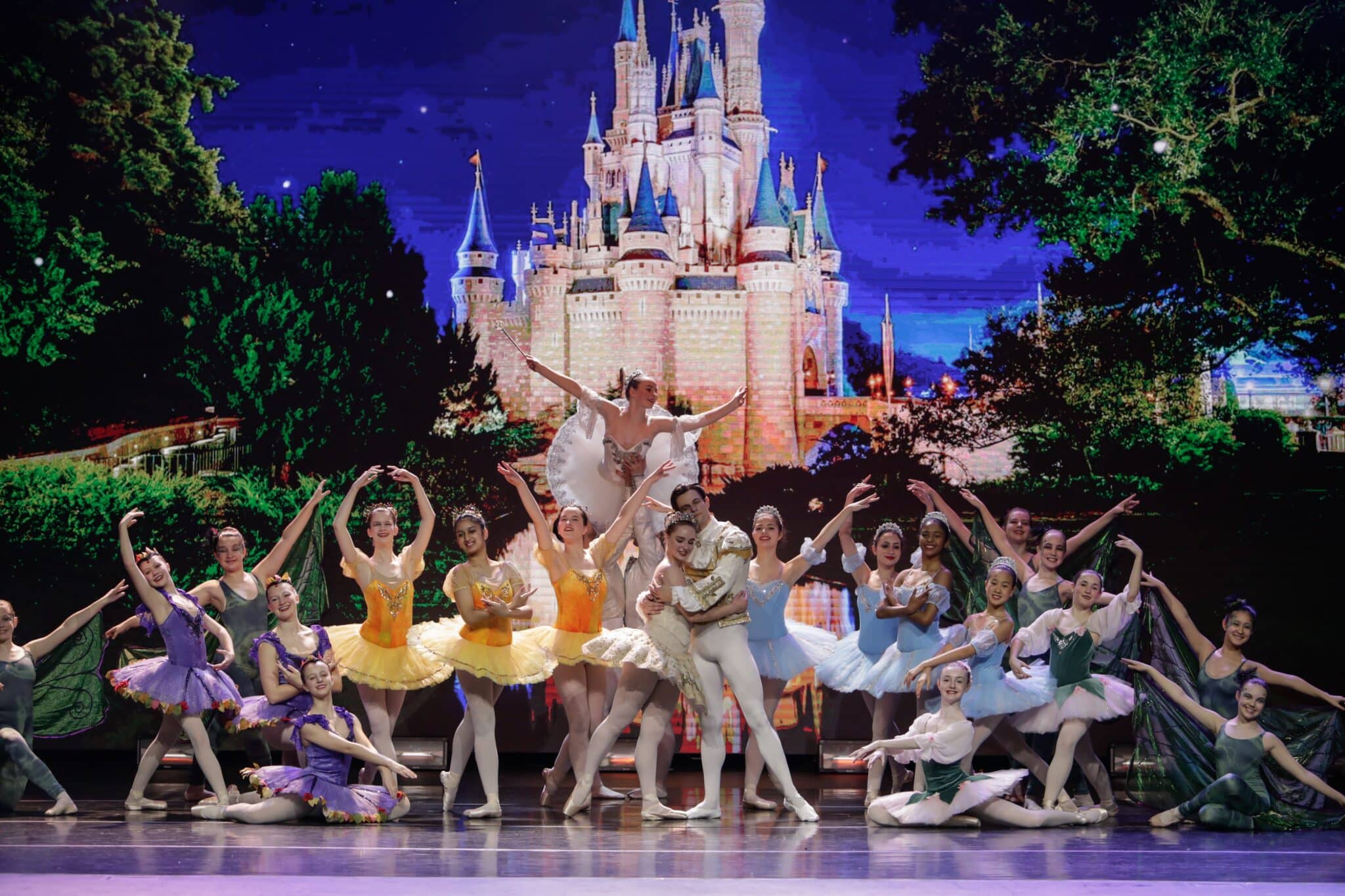
Perimeter Ballet celebrates its 30th anniversary this year. Founded in September 1995, the faith-based ballet school in Johns Creek has long been an integral part of the local arts scene and the community.
What began as a bare-bones program held in the sanctuary of Perimeter Church — on carpeted concrete floors, using the backs of chairs for barres — has grown into a respected school of more than 200 students. Ranging in age from five to 18, the young dancers at Perimeter Ballet are not only committed to the study of dance but also to using their gifts to share their faith.
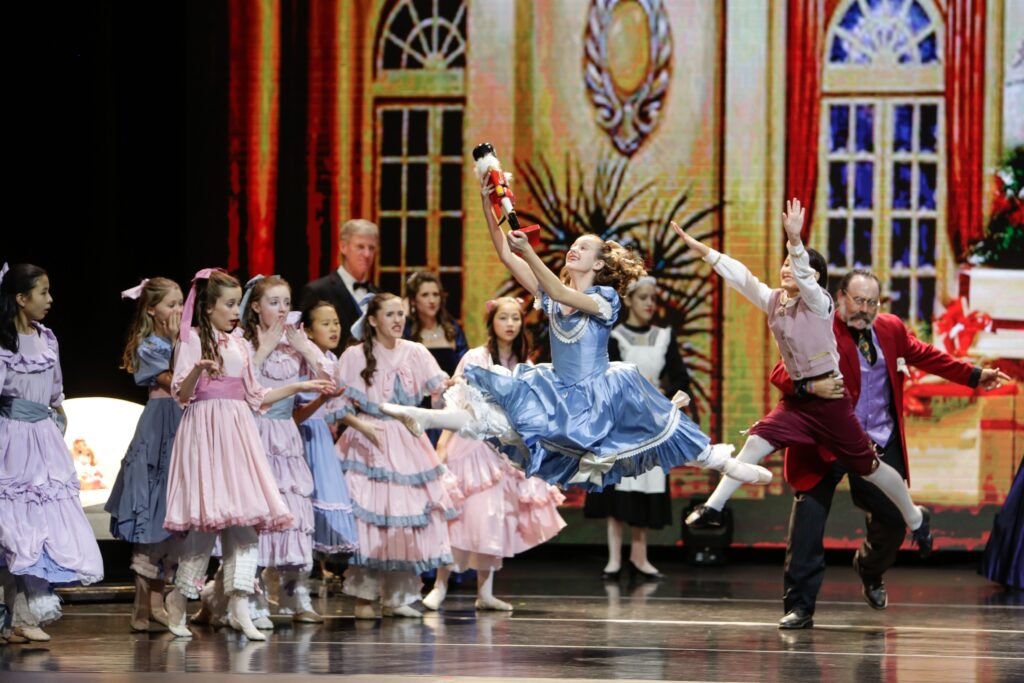
According to the program’s website, their purpose is to “emphasize character along with technique … to counter the natural tendency towards self-absorption in the ballet studio.”
They are “very committed to teaching children to dance — to develop discipline, technique and musicality. [But] the Christian instructors [also] train the students in a context that understands that there’s a reason to dance.”
30 years of dance and faith
Current director, Becky Brown, has led the school for several years, growing the program while faithfully following Perimeter Ballet’s original mission. She oversees weekly classes, summer dance camps and annual productions, including an acclaimed Spring Recital and a presentation of The Nutcracker each December.
For the 30th anniversary, Brown is excited to continue the creative work of the ballet school and share their artistry and message with a larger audience.
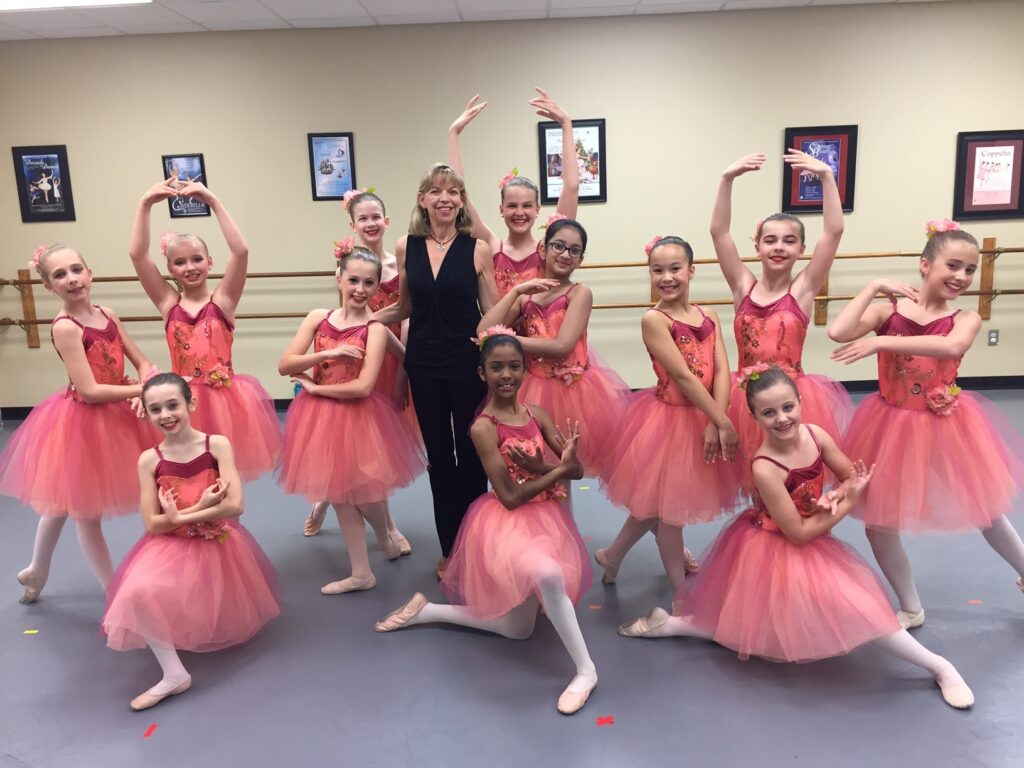
“This year will certainly be a special time for us as we celebrate and look back on 30 wonderful years of Perimeter Ballet and 20 years for our performing company, For His Glory,” she said. “We will be performing the Nutcracker December 11–13 and will have some beautiful new costumes to commemorate the occasion. We look forward to seeing many of our alumni and their families at the performance.”
Classes and instructors
Open to the community at large, weekly classes at Perimeter Ballet range from Creative Movement, PreBallet and grade-level classes for preschoolers through third grade to more advanced classes (two or more times per week) for older students.
Summer camp sessions as well as intermediate level and advanced level intensives are also offered. For the upper-level intensives, students work on their ballet technique but also branch out into jazz and other forms of dance.
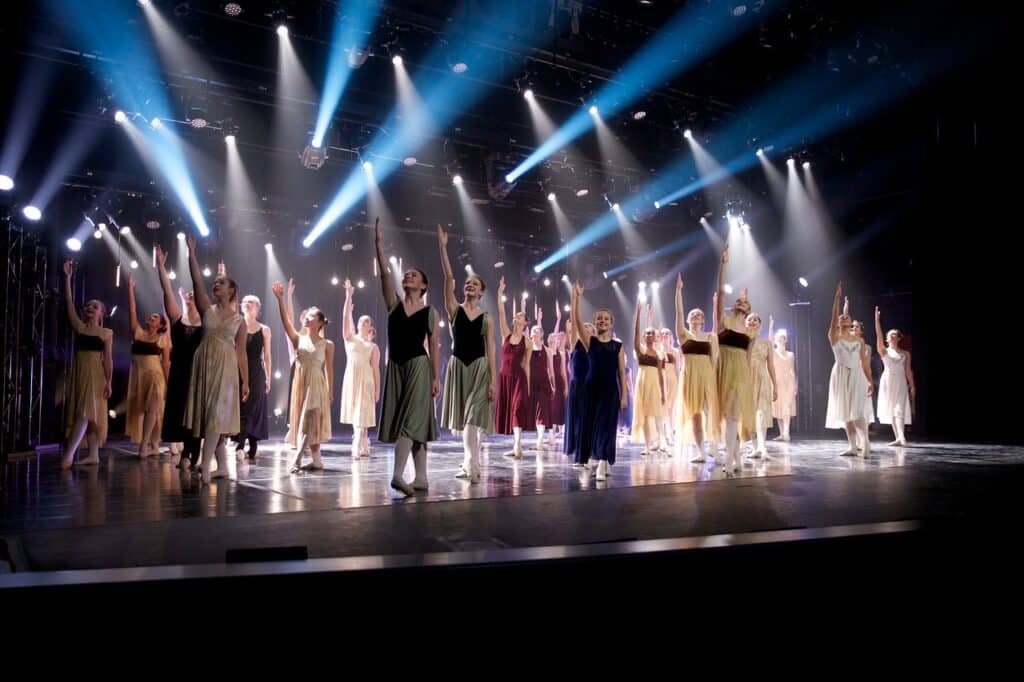
The school’s nine teachers are skilled not just as instructors but as performers themselves, having years of experience dancing with companies such as Ballet Southeast, Atlanta Ballet, North Atlanta Dance Academy and the Metropolitan Opera Ballet. They bring that experience and their Christian faith to all of their classes and interactions with the young students.
For His Glory
In addition to the work they do as a ballet school, Perimeter Ballet also has an audition-selected performance company — For His Glory.
With three levels, made up of dedicated students striving to advance their skills and reach their “God-given potential while giving glory to [their] Lord and Savior, Jesus Christ,” the program presents several high-quality productions throughout the year.
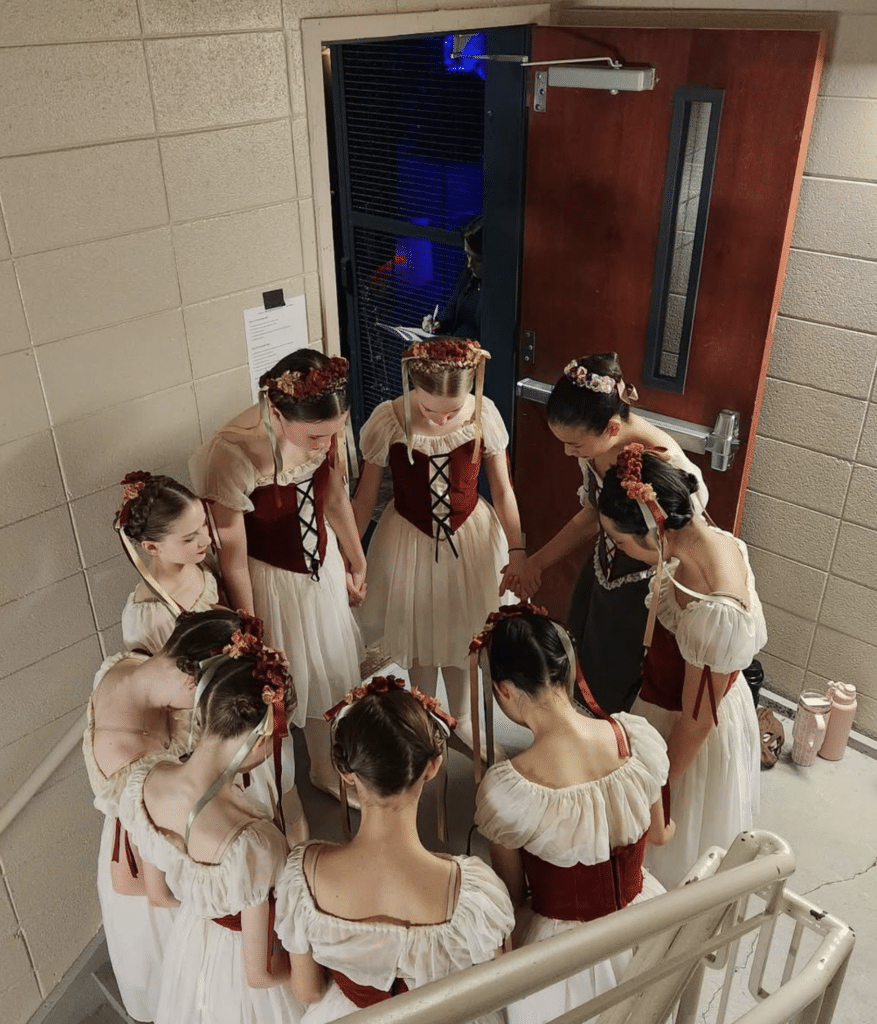
As Perimeter Ballet shares on their website: “Dancers are trained in the ballet classics as well as contemporary forms of dance, which are used in performances, worship settings and outreach. Classical ballets … in the group’s repertoire include Cinderella, Sleeping Beauty, Coppélia, excerpts from Four Seasons and La Fille Mal Gardee. In addition to Christmas and other outreach programs, For His Glory has danced internationally in London, India and Belarus.”
The group most recently performed Beauty & the Beast for two successful shows on stage at the Perimeter Church Sanctuary in early February of this year.
Impact and inspiration
All of this — the focus on faith and commitment to dance, the classes, intensives and stunning productions — have been a decades-long inspiration to the community and especially the student dancers who take part.
Many of the students stay with Perimeter Ballet for much of their childhood, learning and growing in dance as well as in their faith from elementary age through high school. That kind of involvement can clearly impact every aspect of their lives, from discipline learned to how they choose to interact with and be in the world.
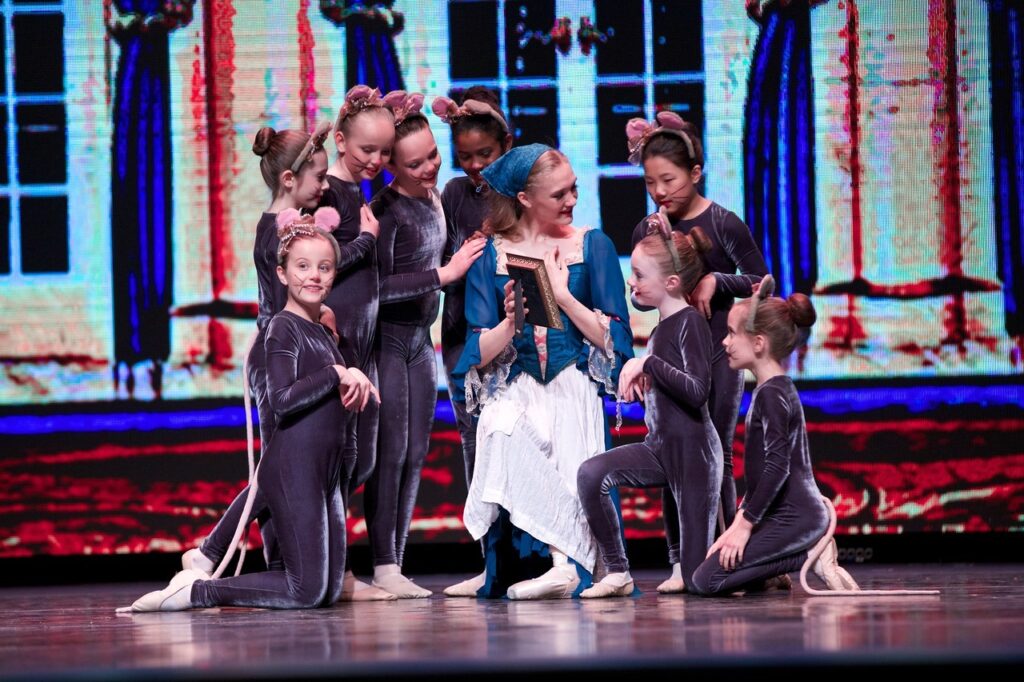
One student, Anne Bradley Maxwell has been taking ballet with the Perimeter program since she was three years old. Now a high school junior in Peachtree Corners, she’s reflected on her time at the school and in the performance company as well as Perimeter Ballet’s milestone anniversary.
“For fifteen years … I matured within this unique, local community arts program,” she shared. “This year marks the 30th anniversary of its founding … and I’m honored to say I’ve been a student for half of that era. The talented instructors in [the] program not only helped advance me into an accomplished ballerina but also into a more faithful servant of Jesus Christ using dance as a form of worship.”
A lifelong journey
“This lifelong journey included annual seasonal training, auditions, numerous external summer intensives and wonderful performances on stages across the nation and abroad, for audiences ranging from a few dozen to several thousand,” Maxwell continued.
“… Taking ballet has instilled in me a deep understanding of perseverance and resilience. Pursuing excellence in ballet required me to overcome physical and emotional challenges … I learned to seek out solutions — whether physical therapy for healing my body or prayer and reflection to rejuvenate my spirit. These experiences have strengthened my ability to face setbacks, adapt and emerge stronger.
Ballet has cultivated in me a unique combination of athleticism, discipline and creative imagination. The most elegant performances emerge from the interplay of technical mastery and creative expression. The collaborative nature of ballet, where individuals work in harmony to create something greater than themselves, informs my approach to teamwork and innovation, both in the classroom and community.”

“… Ballet has [also] given me the gift of joy — both in experiencing it personally as a testament to Christ’s goodness and in sharing it with audiences. This joy, while intangible, is a powerful force that I hope to bring into my next chapters following high school. Whether through teaching movement, choreographing performances or exploring ways to expand ballet offerings, I aspire to enrich the community with the beauty and joy of dance.
… My time at Perimeter Ballet has equipped me with perseverance, discipline, creativity and a passion for sharing joy — qualities that I am excited to further cultivate as a young adult. These will not only enhance my personal journey but also contribute meaningfully to the rich tapestry of life. As I enter my senior year later this fall, I am full of gratitude for the solid foundation of technique and creative expression honoring God as the giver of my talent.”
Upcoming events
Perimeter Ballet’s Annual Spring Recital will be held in the Perimeter Church Sanctuary on Thursday, May 1 and Friday, May 2 from 7 p.m. to 8:15 p.m.
Summer camp sessions are scheduled for June and July. Registration will open on April 15.
2025-2026 classes will start in August with registration opening on April 15.
With help from Anne Bradley, the school is also planning a fundraiser event later in the year to mark the 30th anniversary.
For more information, visit perimeterballet.com.
Related
Read the Digital Edition
Subscribe
Keep Up With Peachtree Corners News
Join our mailing list to receive the latest news and updates from our team.
You have Successfully Subscribed!

Katherine Lafourcade — A Journey of Passion, Resilience and Giving Back

Digital Edition

PCBA Announces 2025 Scholarship Winner

Official City Merchandise Line Debuts This Saturday at Town Green

Paul Duke STEM High School Student Earns CGO Scholarship

World Blood Donor Day Starts Here: Theo’s Miracle, Katherine’s Mission [Podcast]

Executive Function: A Tribute to Working Moms

Peachtree Corners Grows Business Opportunities Through Economic Development

City of Peachtree Corners Awarded Certificate of Achievement From GFOA for Seventh Straight Year

Simpson Elementary Marks Exceptional Children’s Week

Executive Function: A Tribute to Working Moms

Official City Merchandise Line Debuts This Saturday at Town Green

Peachtree Corners Grows Business Opportunities Through Economic Development

Digital Edition

World Blood Donor Day Starts Here: Theo’s Miracle, Katherine’s Mission [Podcast]

Paul Duke STEM High School Student Earns CGO Scholarship

Light up the Corners [Video]

Capitalist Sage: Business Leadership in Your Community [Podcast]

Cliff Bramble: A Culinary Adventure through Italy

Top 10 Brunch Places in Gwinnett County

A Hunger for Hospitality

THE CORNERS EPISODE 3 – BLAXICAN PART 1

Top 10 Indoor Things To Do This Winter

The ED Hour: What it takes to Remove Barriers from Education








